
广州万科云城二期是一个集公寓、企业孵化器、学校与商业于一身的先锋社区综合体,其客户人群以青年和年轻家庭为主体。尽管因功能不同而设计各不相同,景观设计师构建了一个完整而丰富的“像素社区”。整体的景观框架都基于一个像素化的网格系统,为年轻的使用群体提供了互动而灵活的空间,同时,标志性的设计语言为社区带来了极具辨识性的场所身份。西地块西北角的Tetris广场(俄罗斯方块广场),占地6000平方米,是社区内最大的公共开放空间,作为重要的公共纽带紧密联结着整个青年社区。
Guangzhou Vanke Cloud City Phase 2 is a pioneer mixed-use development which is comprised of a diverse blend of affordable housing, small apartments, incubator offices, a shopping mall and a middle school. Even with all these different elements, landscape architects formulated a complete and rich "pixel community" with a unified landscape framework. The framework is based on a pixelated grid system that not only provides flexible use space but also maintains a strong community identity. In the northwest corner of the grid is Tetris Square, the name of which was proposed by the landscape architects, and later accepted by the client. Tetris Square, with a size of six thousand square meters, is the largest public space of this young community.
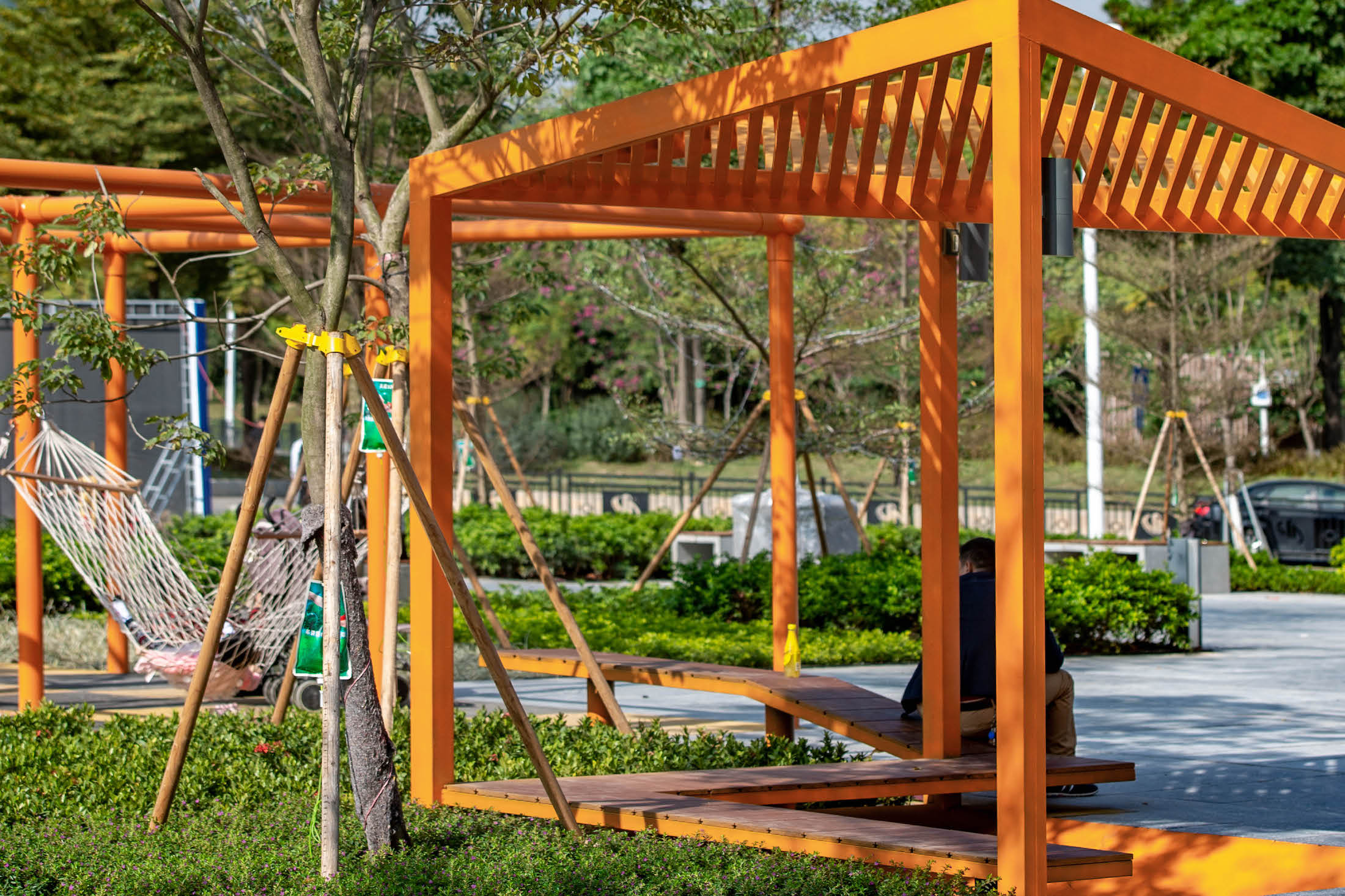
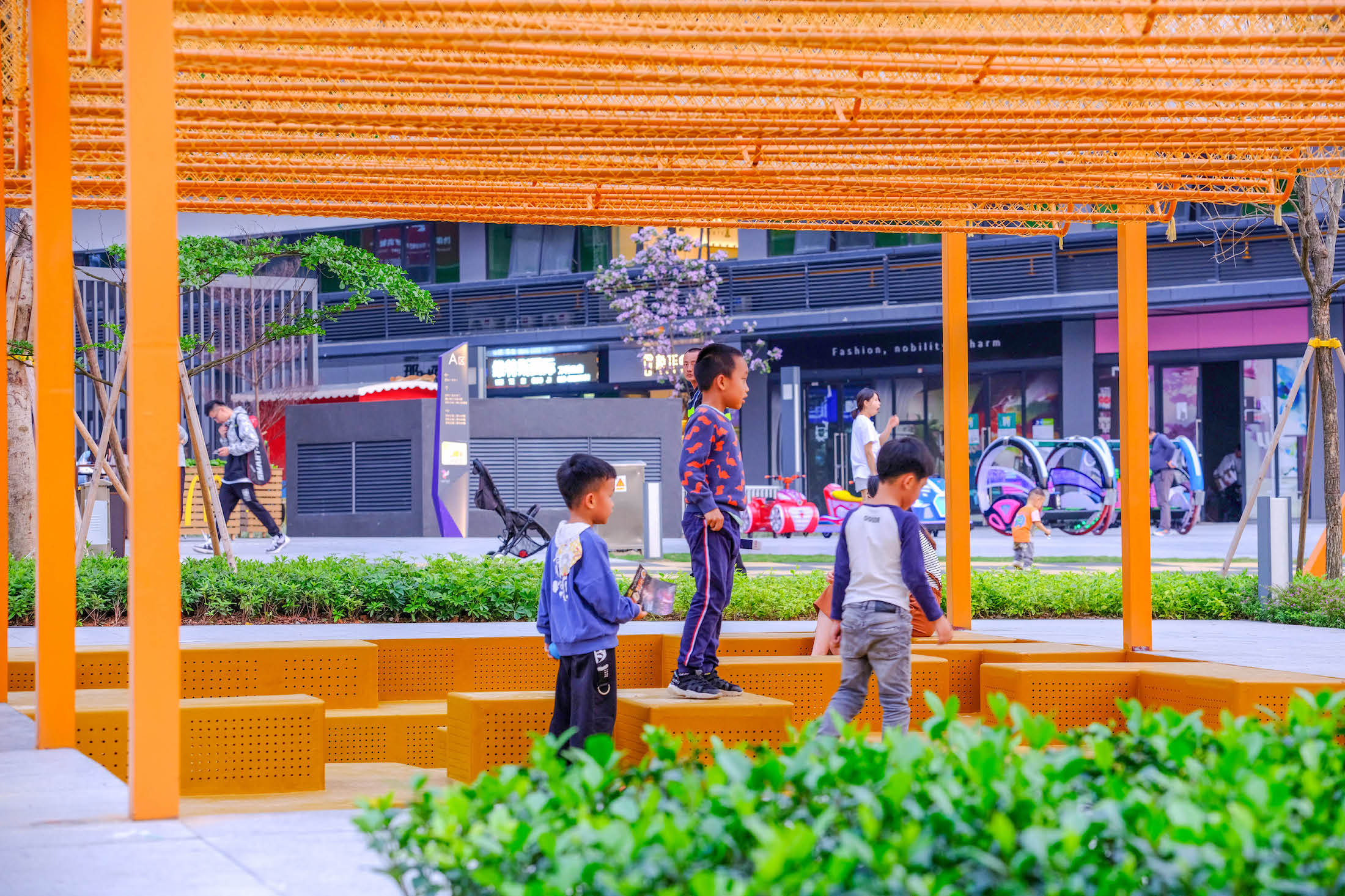
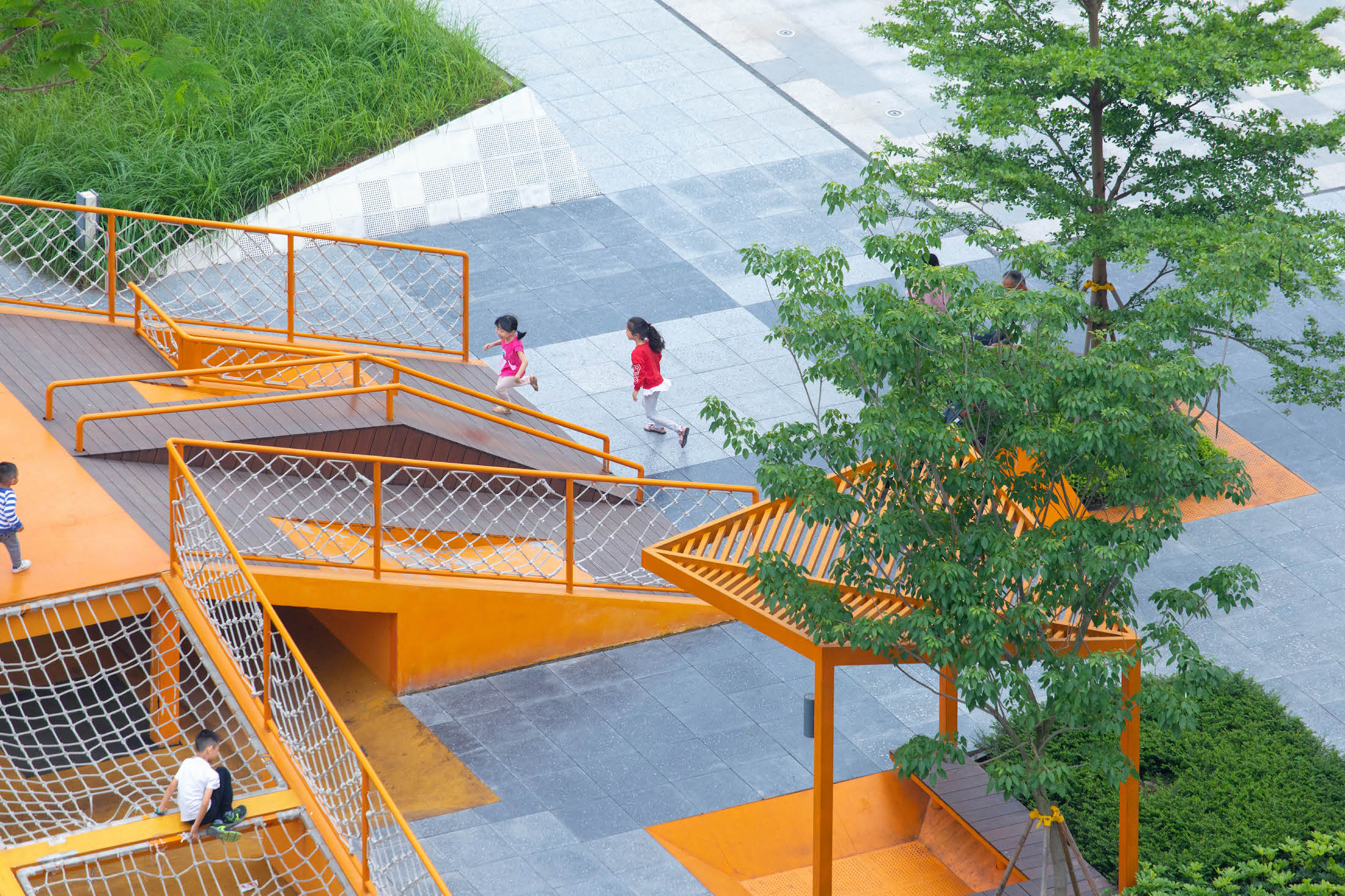
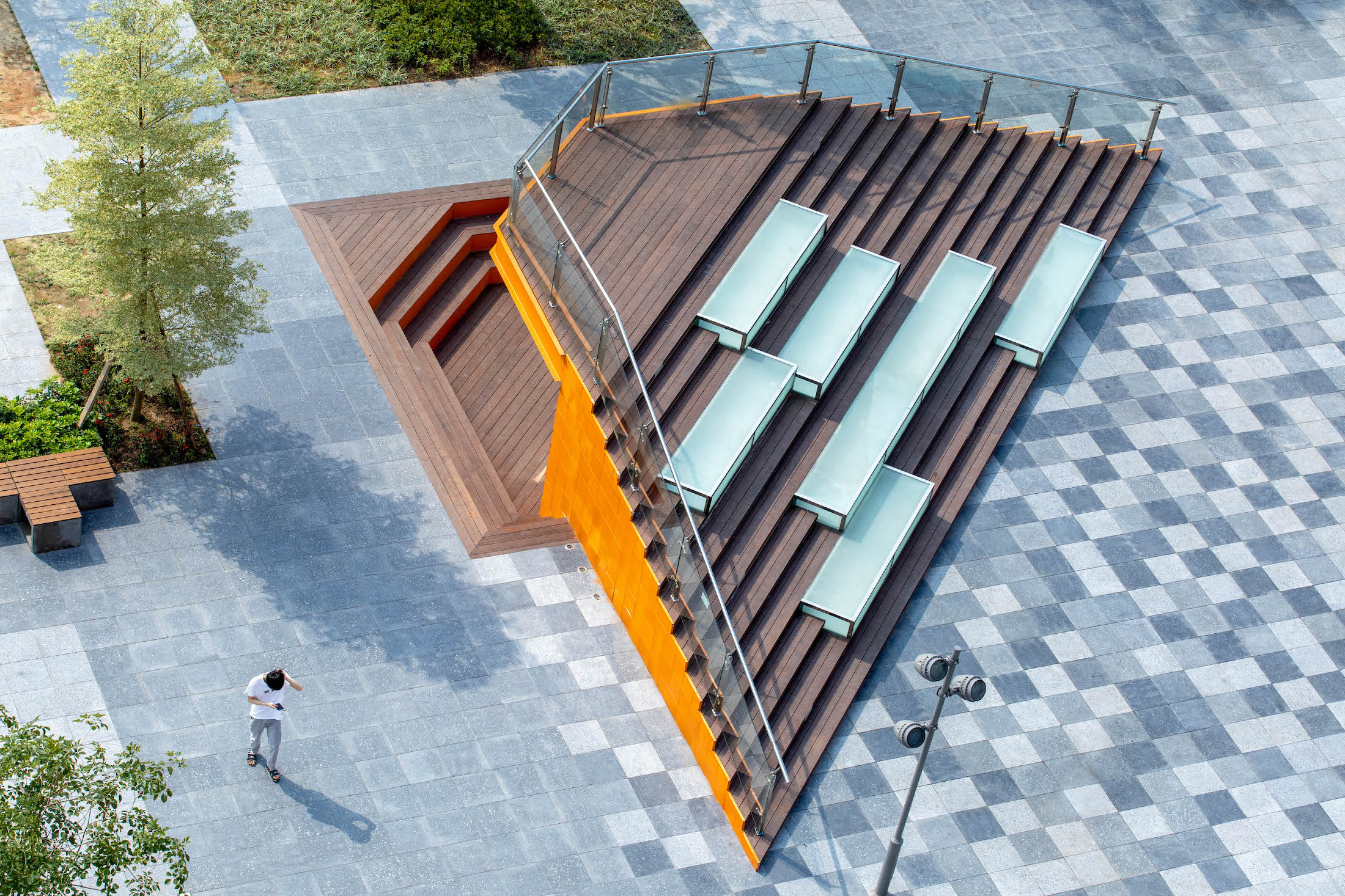
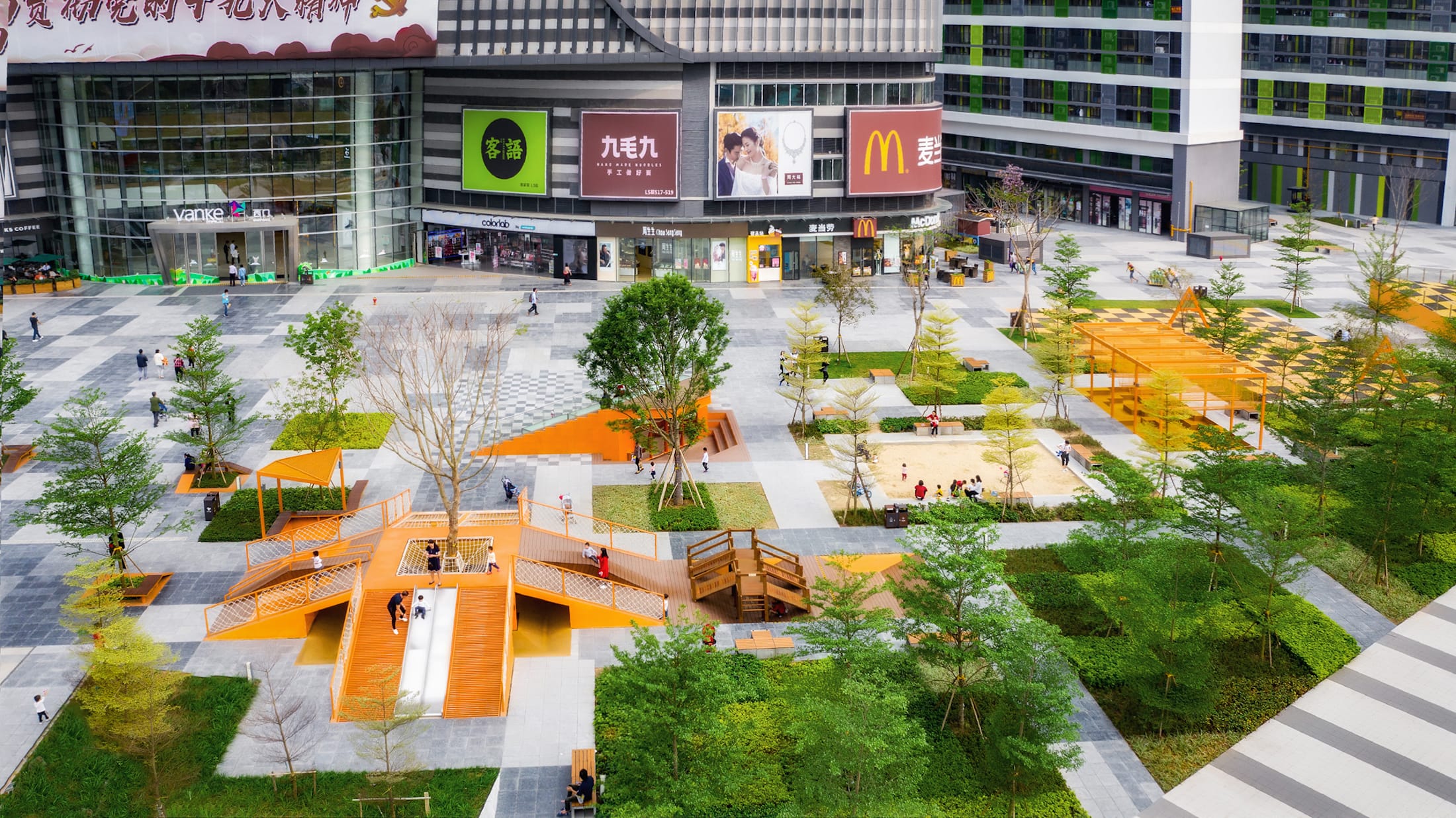


Tetris广场尽管是一个商业广场,但我们的目标是将其设计成一座迷你公园,作为一条联结以核心家庭(三口之家)为主体的云城社区和周边社区的纽带。在通往商业建筑走廊的两侧,分布了符合各个年龄层的儿童游乐空间。其中,亲子口袋为周边社区的家长与儿童提供了互动的场所,促进家长与孩子的户外交流。自由岛是一个供孩子们用身体去探索不同空间的三维游乐岛,也是整个广场中体验最为丰富的场所。场地里的云幔、云丘和云亭,不仅缓解了广场的人流压力,还为年轻人和家长寻找属于自己的场所提供了更多的可能性。商场前的户外剧场,不仅为商业活动提供了事件空间,也为六层的学校提供了户外课堂场所。这些不同的功能场所组成的一座迷你社区公园,也成为周边社区仅有的公共空间。
Even though established in front of a commercial plaza, the Tetris Square is designed as a park, connecting the Cloud City and adjacent communities. There are playgrounds for different ages on both sides of the square corridor, catering to the desires of its major users – the nuclear-family. The Family Pocket is a place where kids and parents interact with a series of hammocks. The Free Island is a three-dimensional play facility for kids to explore spaces and exercise their bodies. Other design elements such as the Cloud Curtain, the Cloud Mount and the Cloud Pavilion provide more possibilities for young people and parents to choose from. The amphitheater in front of the shopping mall not only provides event space for commercial activities, but also can serve as an outdoor classroom for the middle school. Linking this series of spaces, with all their various programs, forms a mini-park that serves the adjacent community.
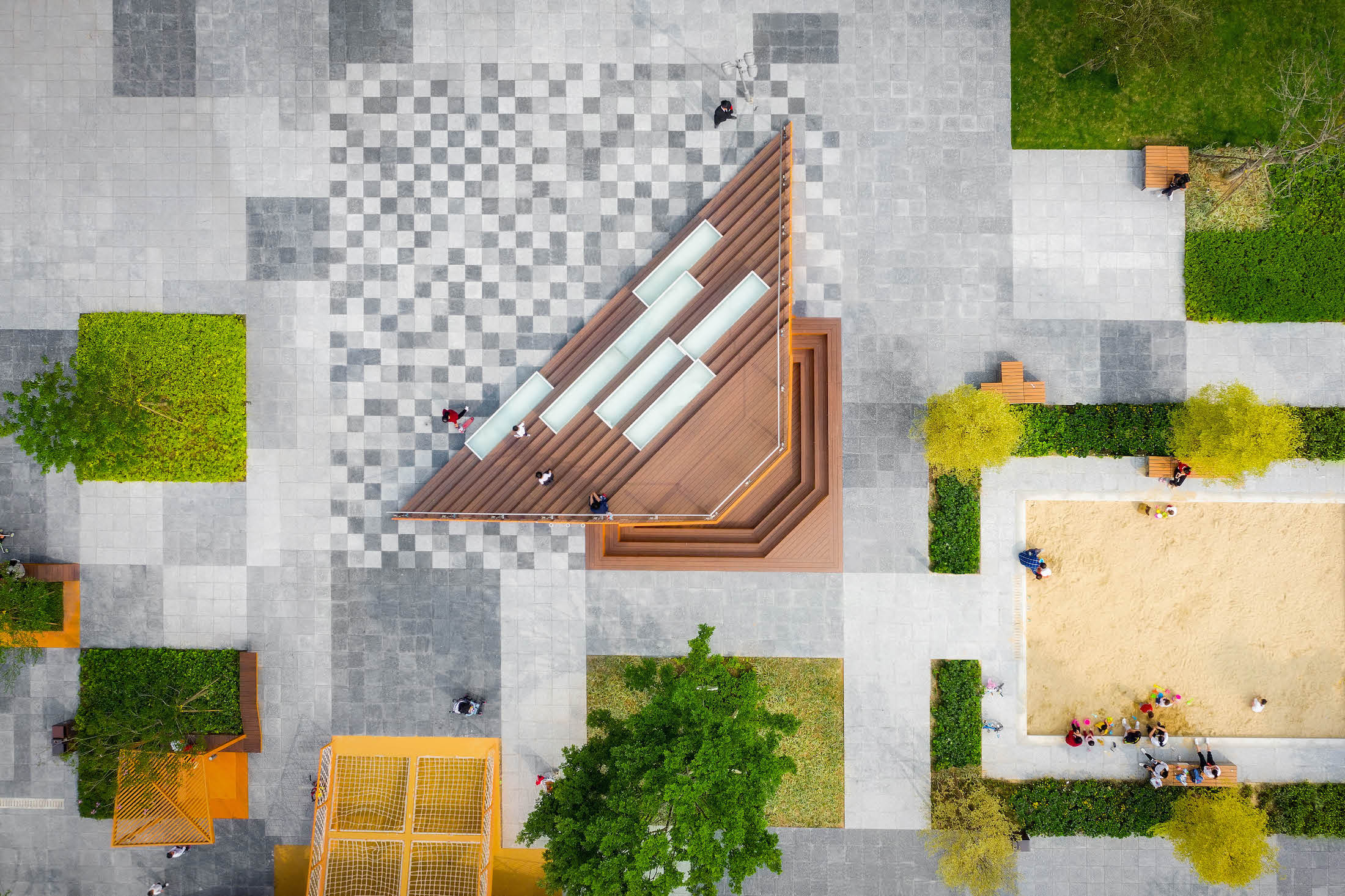
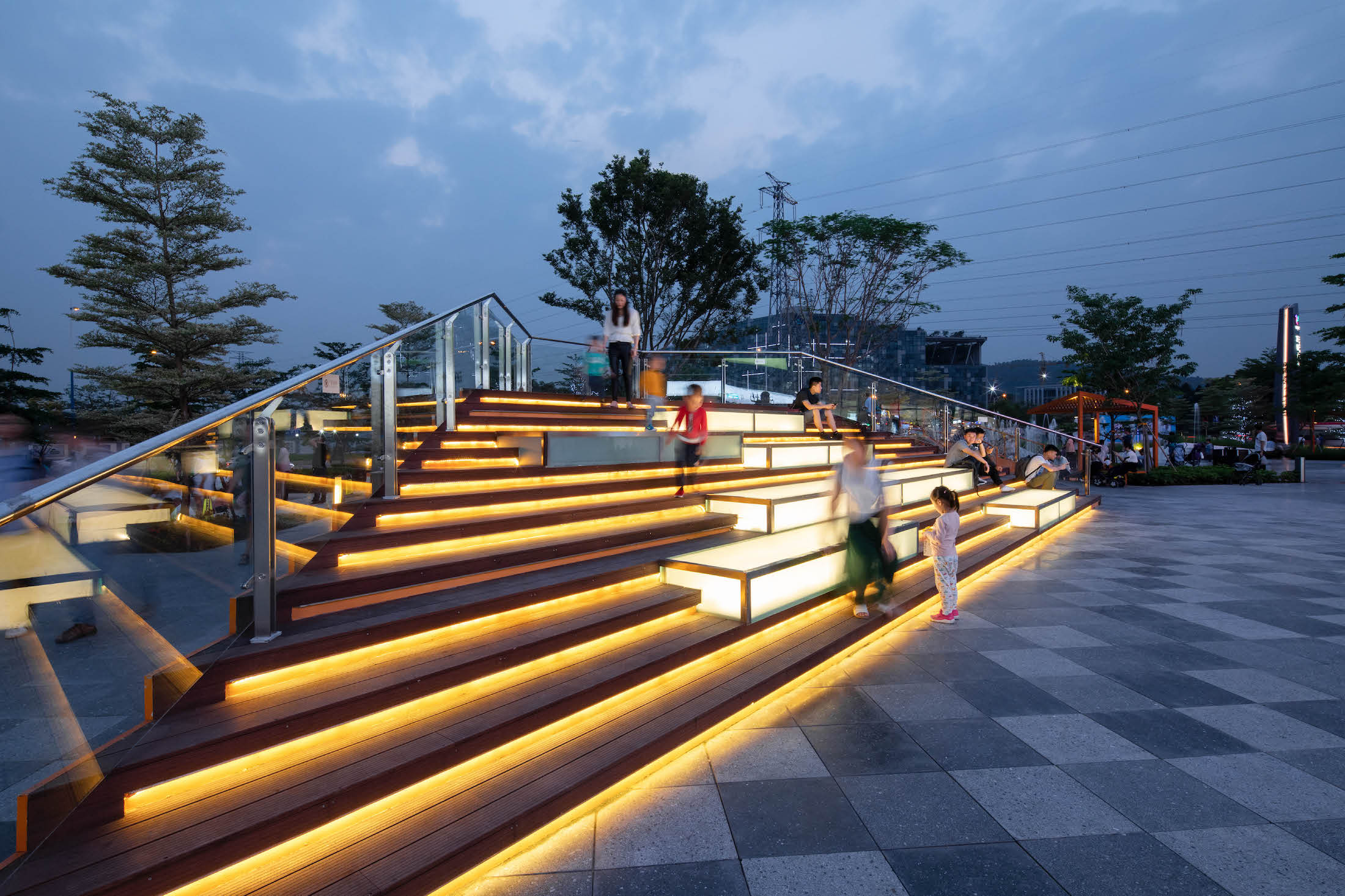
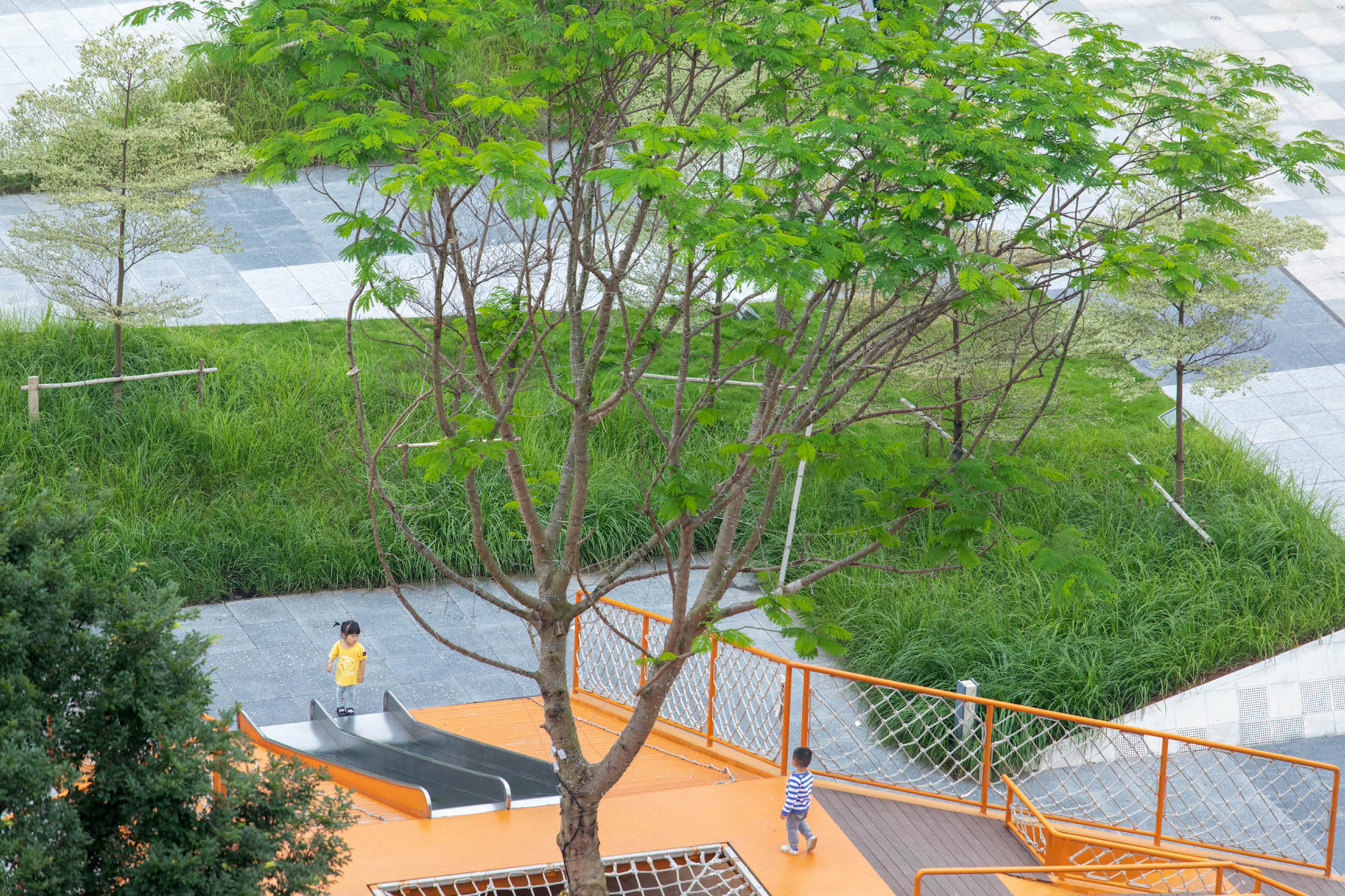
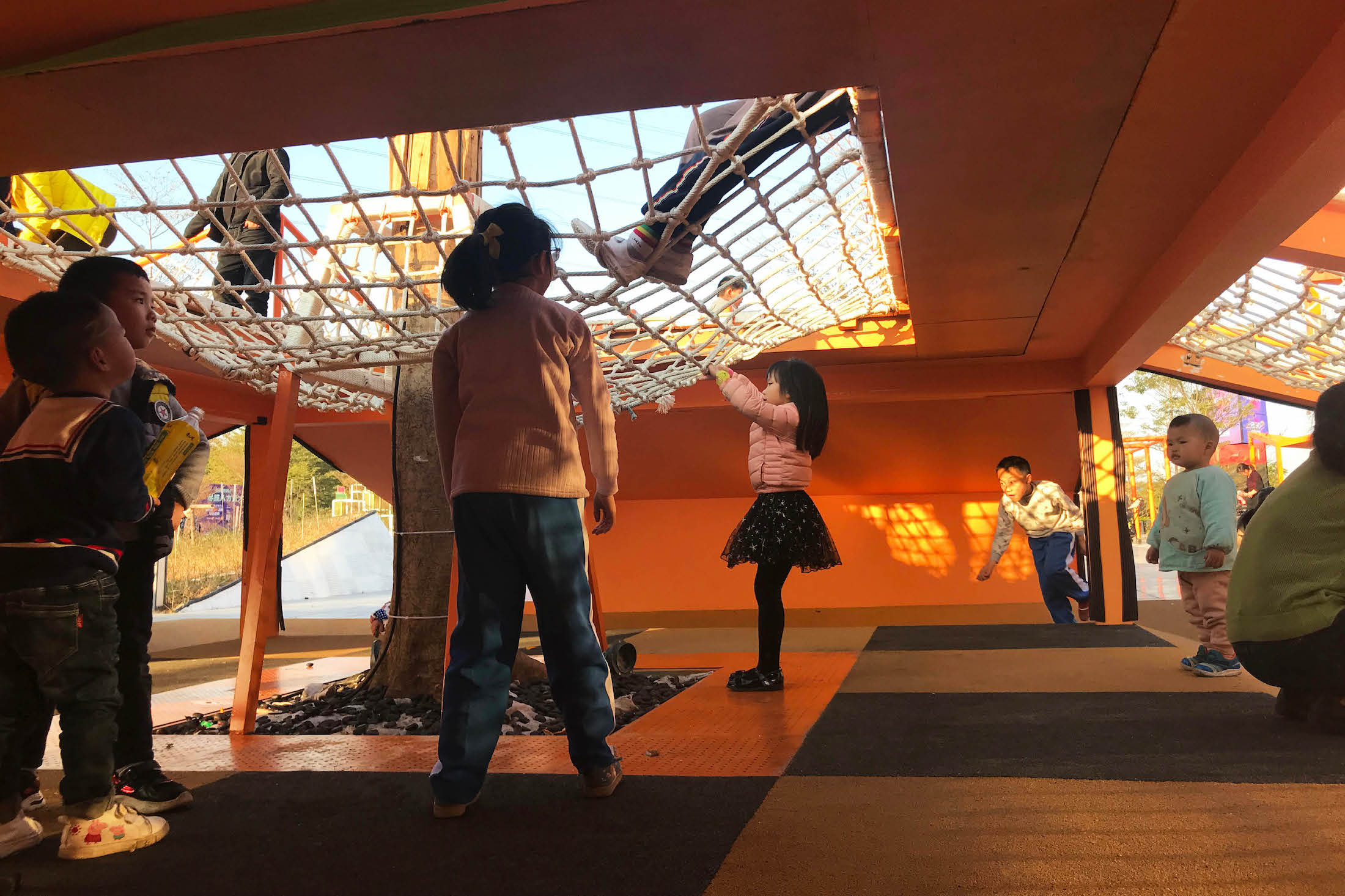
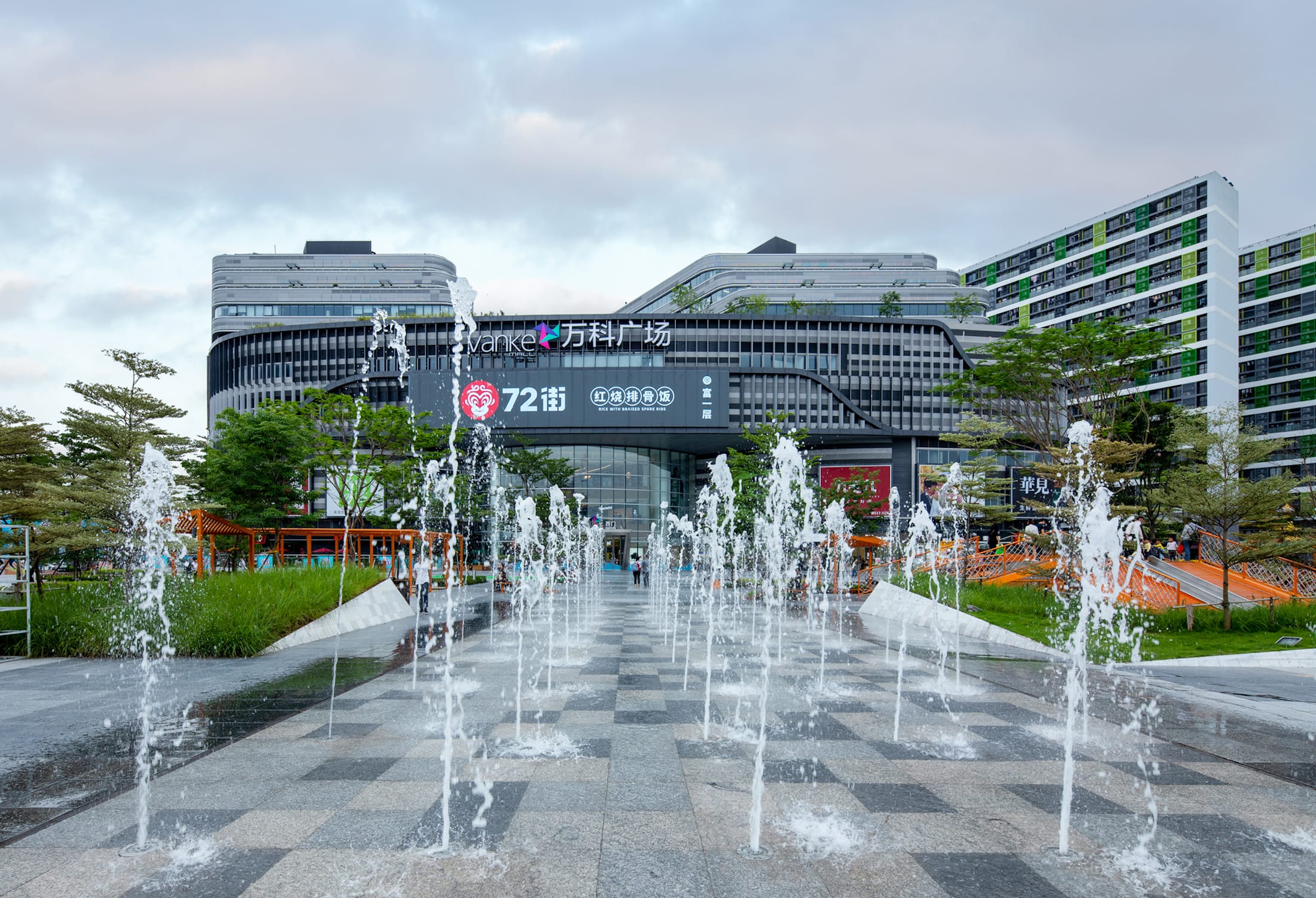
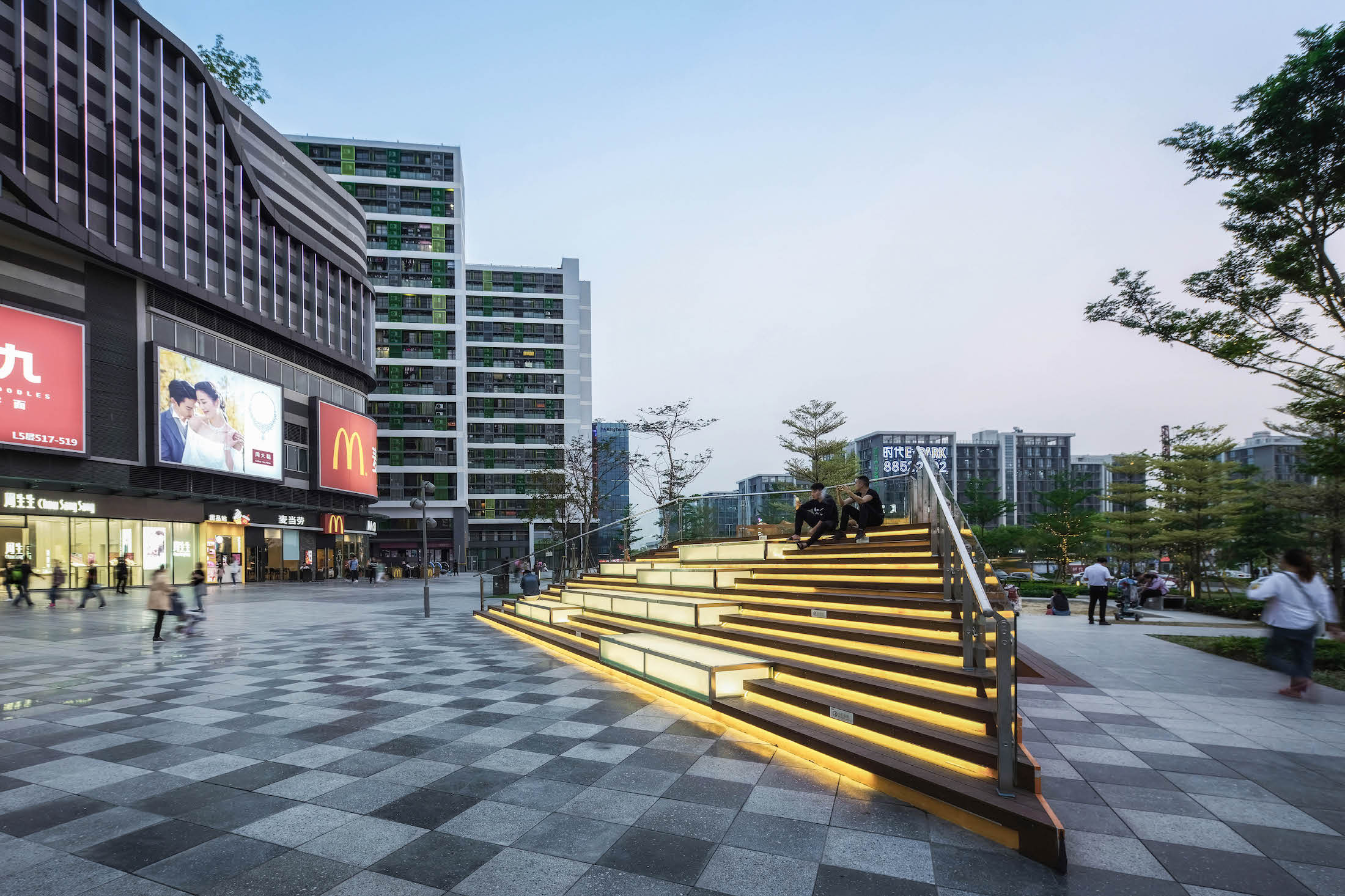
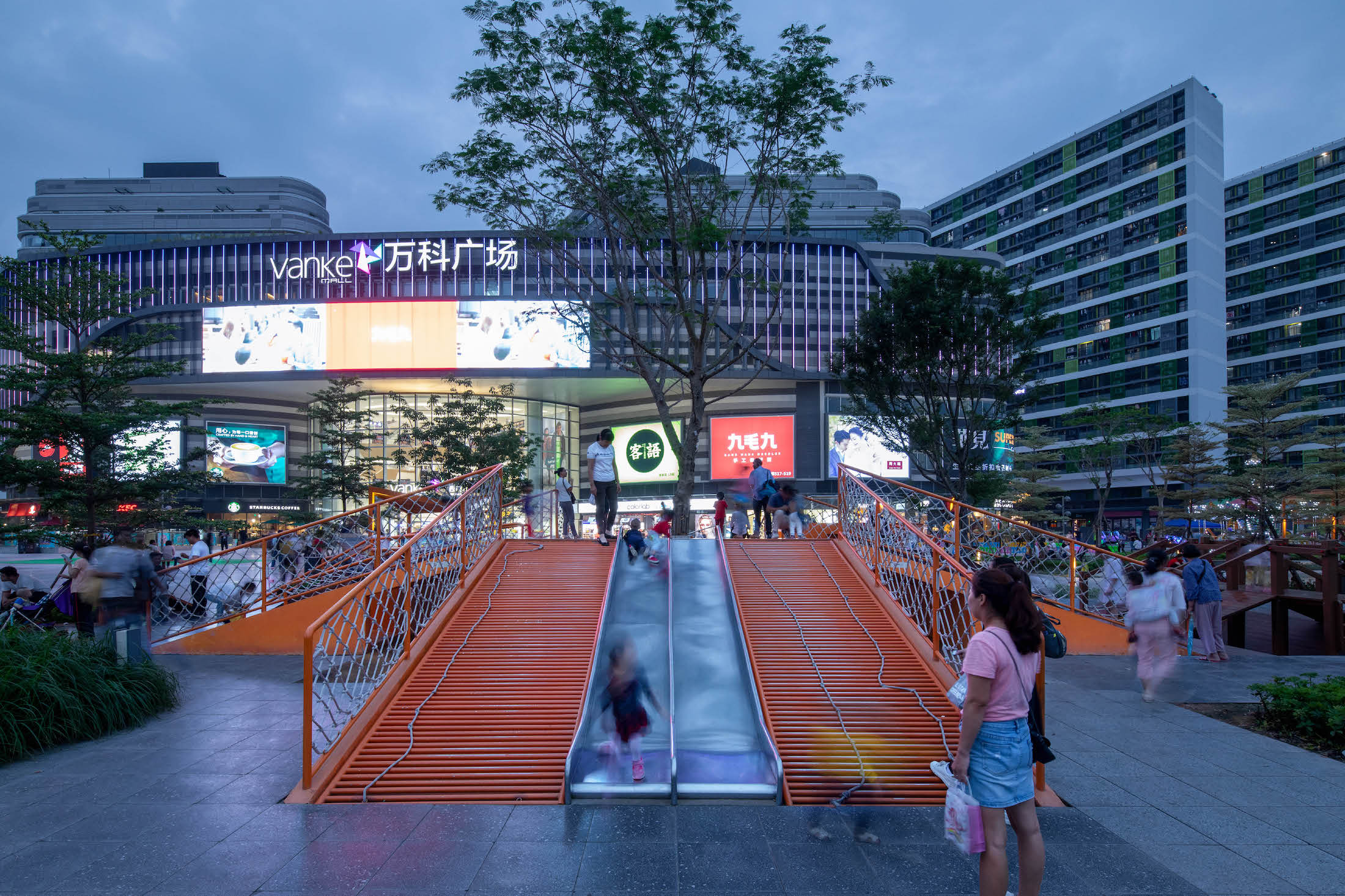
与典型的商业广场项目相比,Tetris广场的乔木量是巨大的。我们通过与游憩设施的结合,在设计中“藏”了一片树林,它并没有遵循传统商业少种树以保持店铺通透可视的原则,然而这一策略也并没有为商业带来负担,相反,它为社区商业带来了充足的人气与夏季的阴凉,这对于炎热湿润的广州尤为重要。乔木分布从人行道至商业建筑呈由密到疏的变化,几条重要的通廊被留出以便人群更快地进入商业广场。两棵核心大乔木分别位于亲子口袋和自由岛的中心,它们在视觉上强化了通往商业入口的通廊。同时,亲子口袋与自由岛的一系列的游戏空间围绕着这两棵“大树”展开并不断蔓延。云幔,沙池与云丘等空间周边均种植有抵挡夏天烈日的乔木,为小朋友和家长提供了由密到疏的林下空间。
这片树林,将伴随着社区的成长而生长,假以时日,这些陪伴孩子们长大的一棵棵树,将枝繁叶茂,成为童年美好的回忆。
Compared to a traditional commercial plaza, the Tetris Plaza has a decent number of trees. Landscape architects "hide" this grove by integrating it into the play facility. This does not follow the traditional design principle of a commercial plaza, which is to plant as few trees as possible to optimize storefront views. The strategy is successful, as it mingles people and shade in the shopping mall area, which is especially important for this tropical and humid climate. From the sidewalks approaching the shopping mall, the trees are arranged in a dense-to-sparse gradient order, with openings that lead to the mall. Two fully developed, shady trees sit on each side of the main corridor, enhancing the visual beauty of the corridor. At the same time, the spaces of the Family Pocket and Free Island are designed and developed based around the presence of these two trees. Groves of trees around the Cloud Curtain, sand pool and the Cloud Mount provide varying degrees of shade for kids and parents as they enjoy the facilities. The grove will continue to grow with the community, enhancing the children's wonderful moments spent in the site into the future.
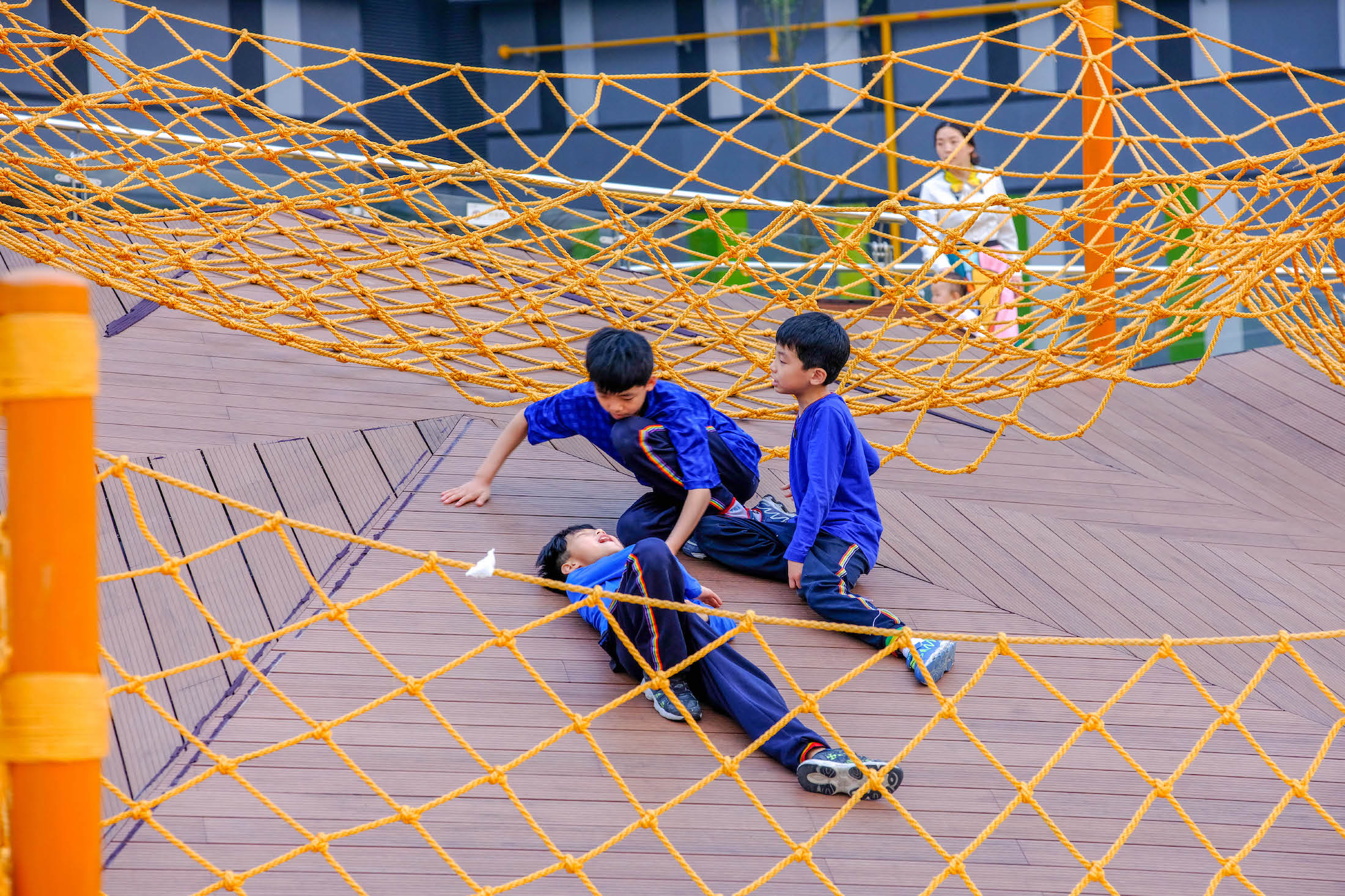
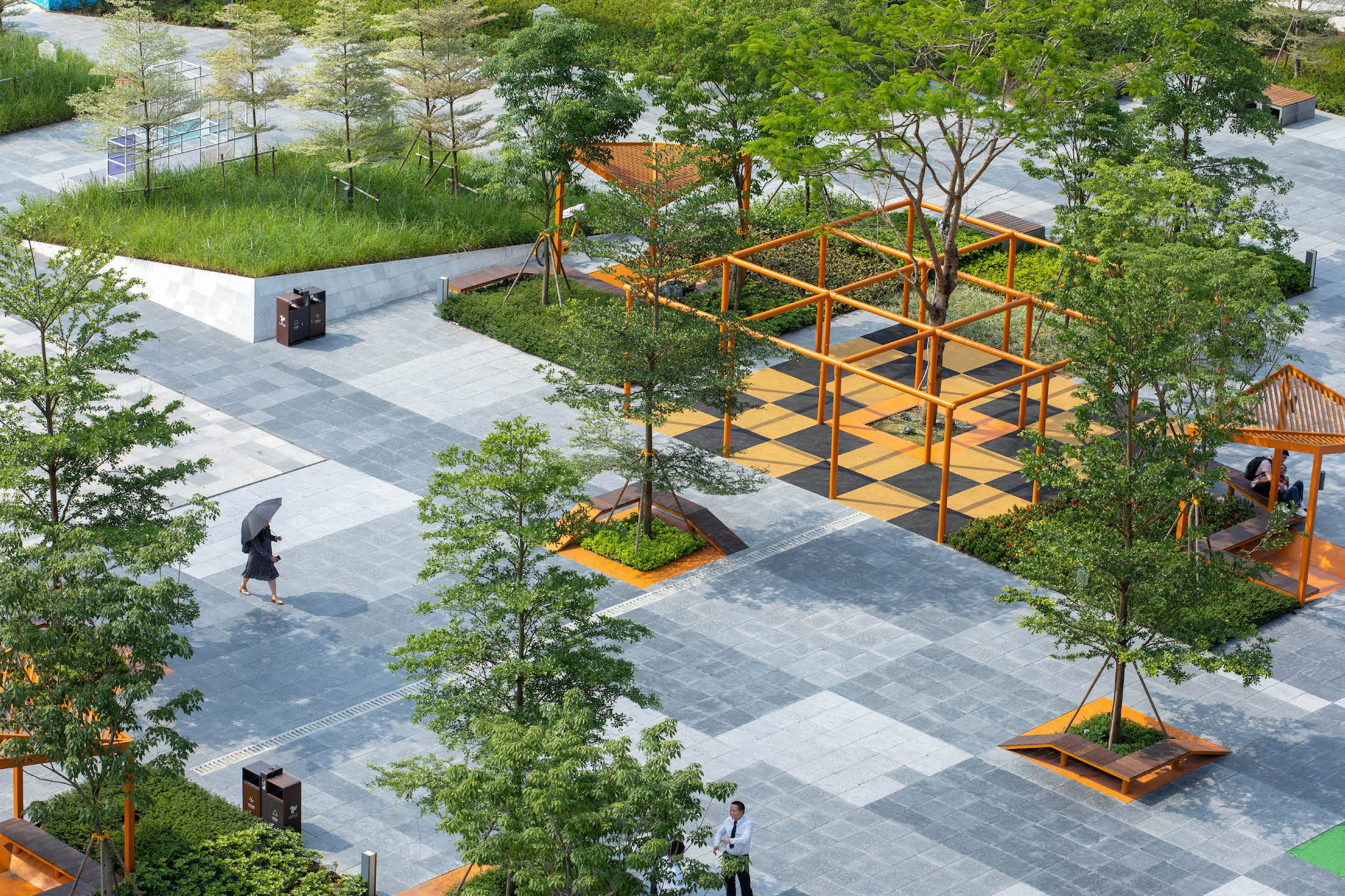
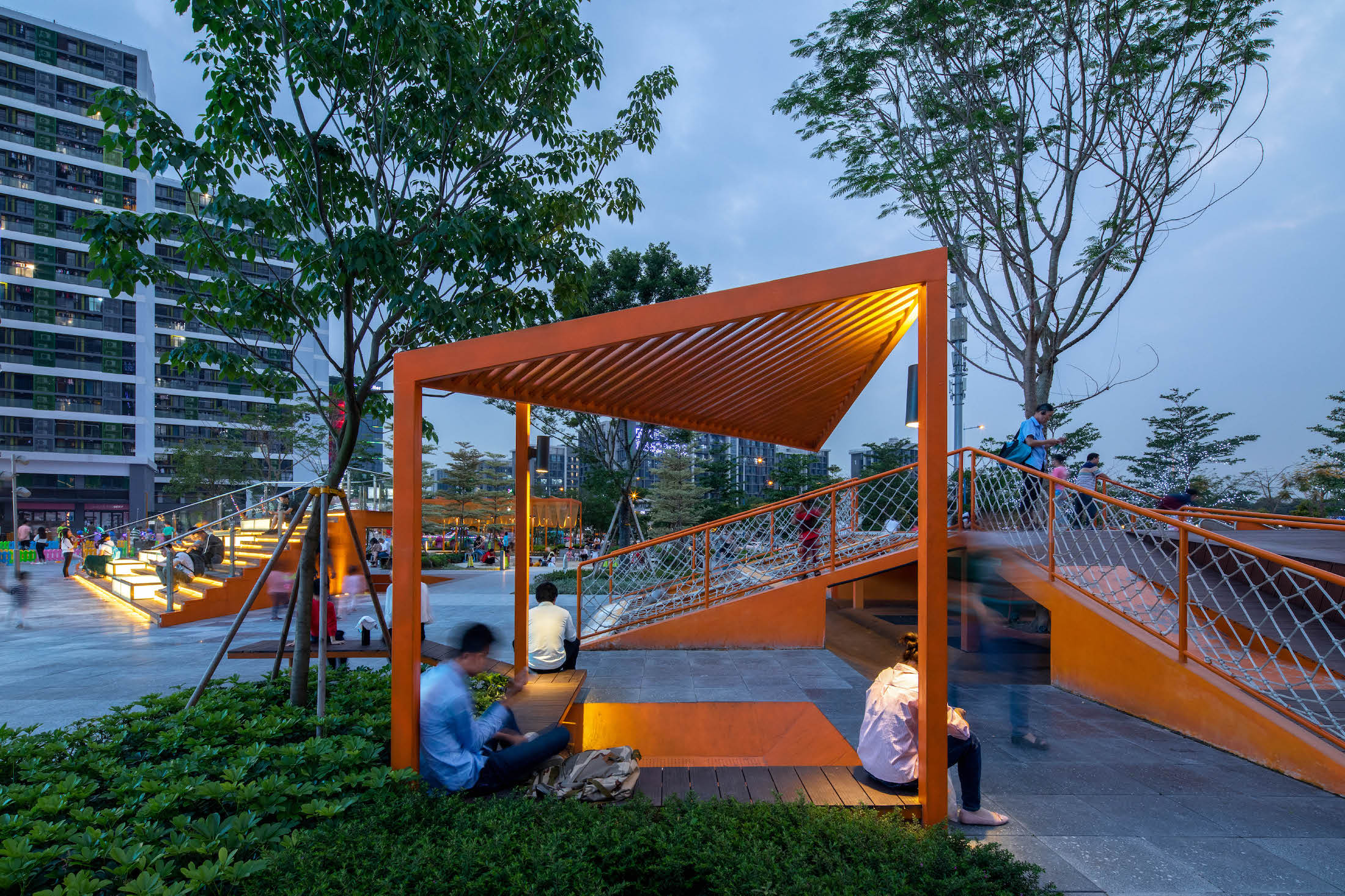
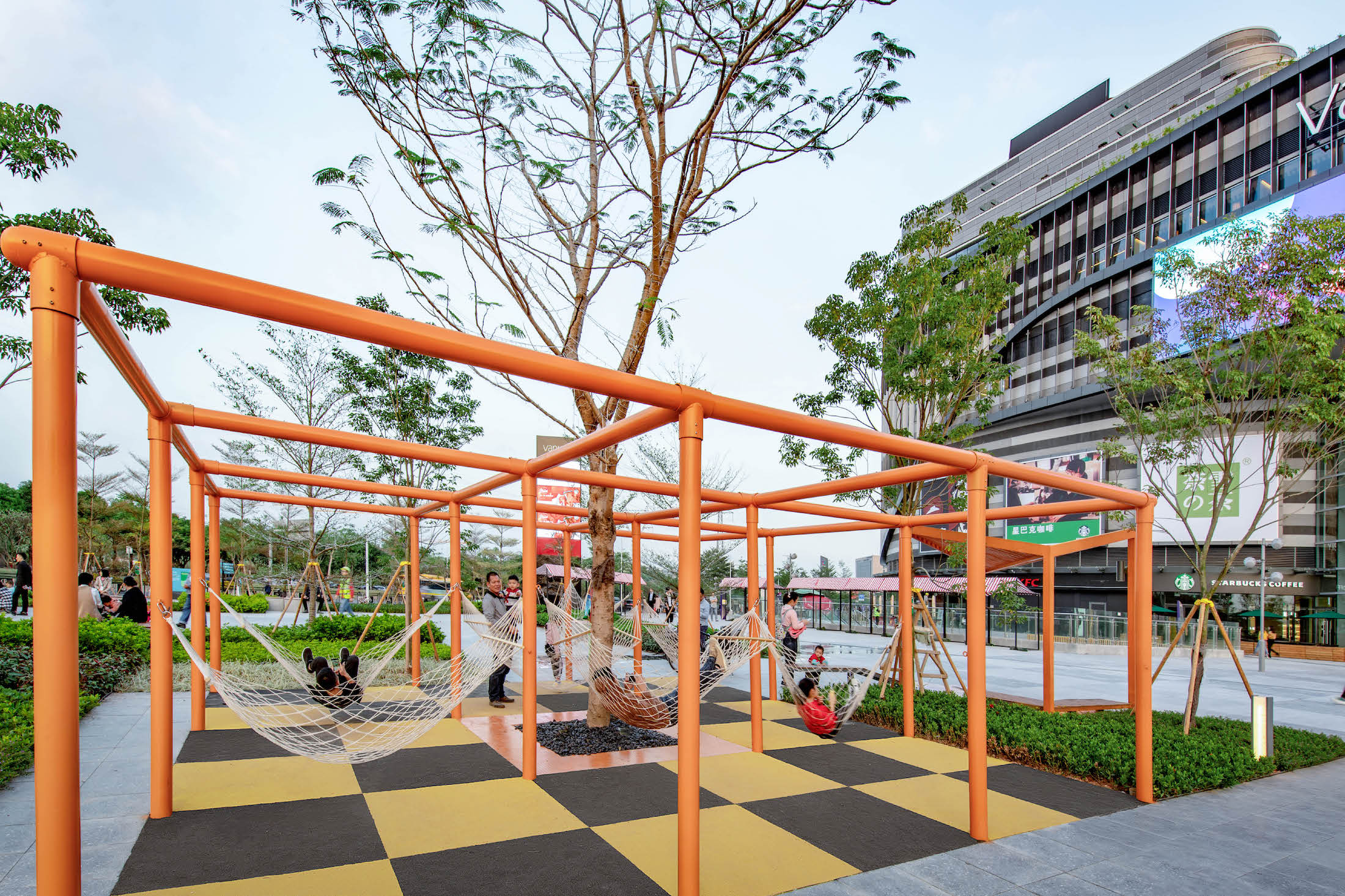
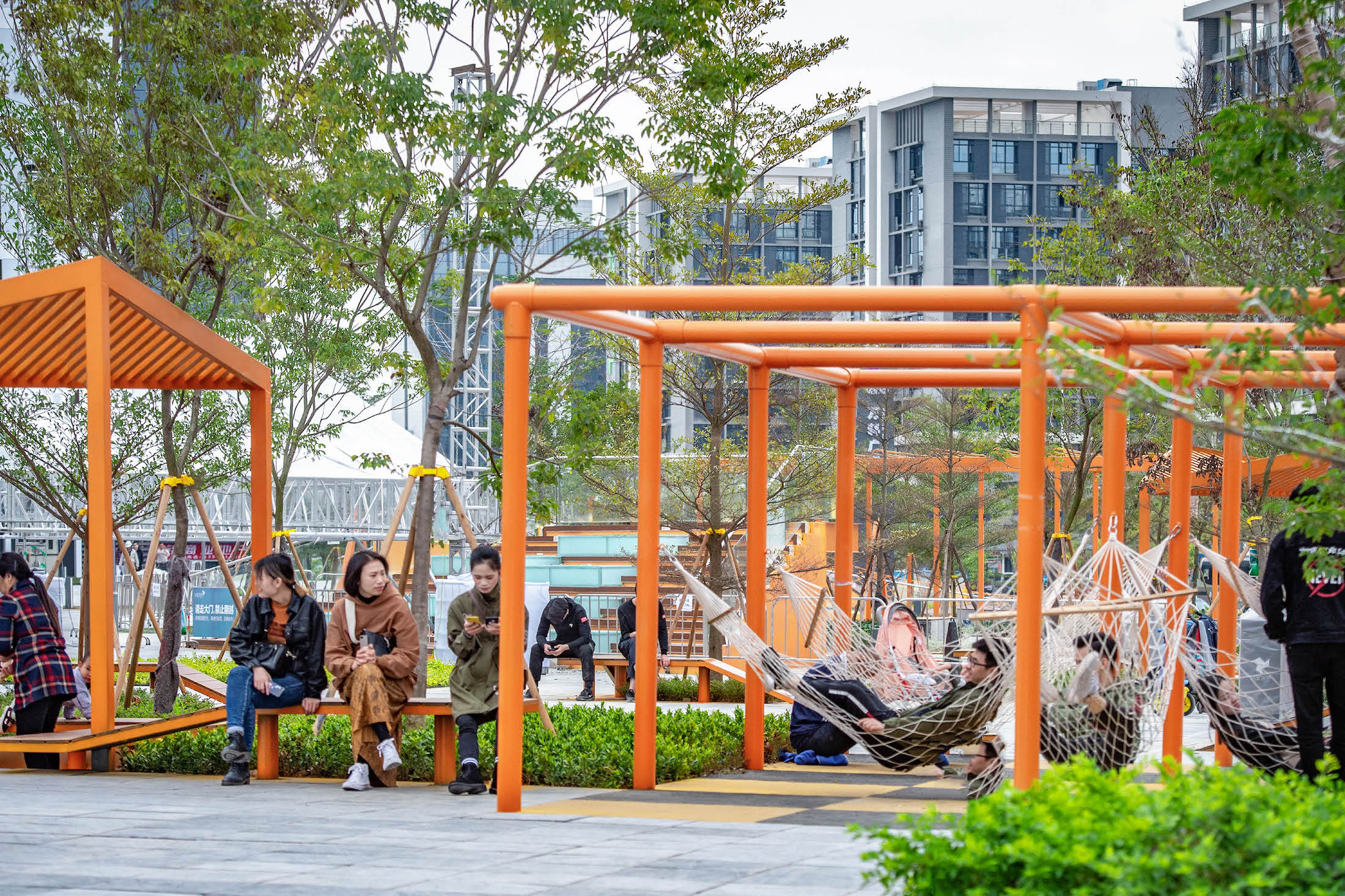
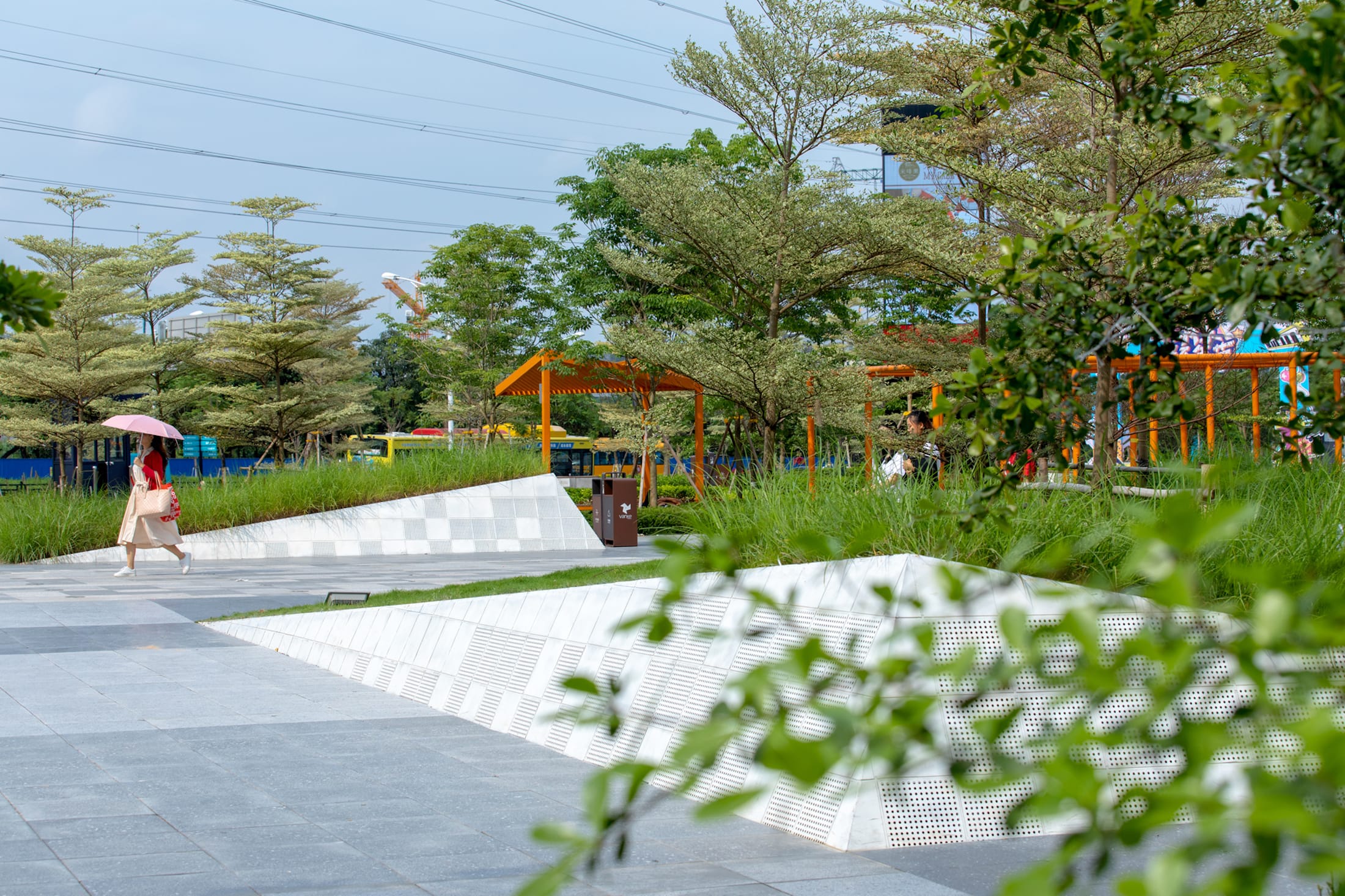
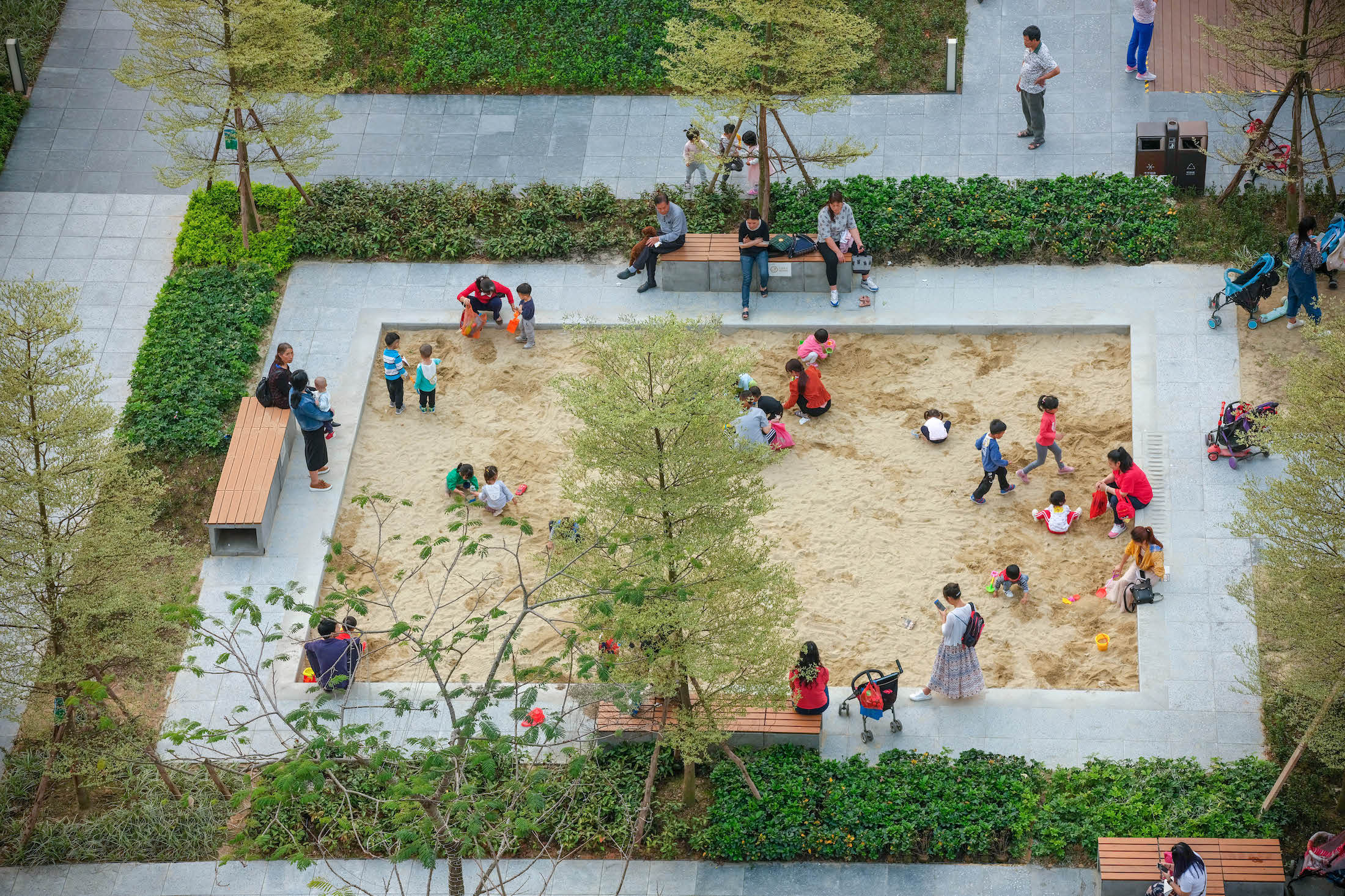
对我们来说,通过设计回应低成本的建造并不应该是被动应对或难以启齿的事情,相反,它是这个项目设计语言形成的主要动力之一。以方块网格作为设计形式,不仅使得物料安排与分配变得节省,而且可以使难以预料的施工建造变得相对可控,尤其在施工质量难以预测的中国。模块化的混凝土家具被广泛地应用在整个云城二期中,我们设计了两款基本模块,可以衍生出20多种组合方式。自由选择自己中意的组合方式,非常符合年轻人的使用习惯。除了户外家具为预制混凝土外,我们也选择了预制混凝土块作为场地的铺装,这不仅出于节约造价的需求,也是为保护中国过度开采并使用自然石材而发出呼声。在项目的施工过程中,我们的确遭遇了因厂家技术瓶颈而带来的各种问题,如不同批次的PC调色不统一、四角不平整等问题。尽管如此,我们依然认为推动新型材料的使用与普及是很有必要的。我们依然相信只有致力于新型材料代替自然石材的研发,才能更好的维护日益恶化的自然环境。
In this project, a low construction budget was not seen as a constraint or an embarrassment; on the contrary, it was one of the main driving forces of the design principles. The grid system of squares not only makes material fabrication and arrangement much cheaper, but also make construction costs more predictable and controllable, especially in China where construction quality is often unpredictable. Assembled precast concrete outdoor furniture is used extensively in this project. Landscape architects designed only two basic precast concrete modules, which could be mixed and matched, and assembled into more than twenty different combinations. Users can select the most comfortable furniture combination to meet their needs, which appealsstrongly to a younger user and their inclinations. Besides precast concrete furniture, landscape architects also selected precast concrete pavers for paving the site. This decision was driven byeconomic reasons, as the precast units are about one-third of the stone paver’s unit price in the current market, as well as for the environmental considerations, where natural stone is over-exploited in China.
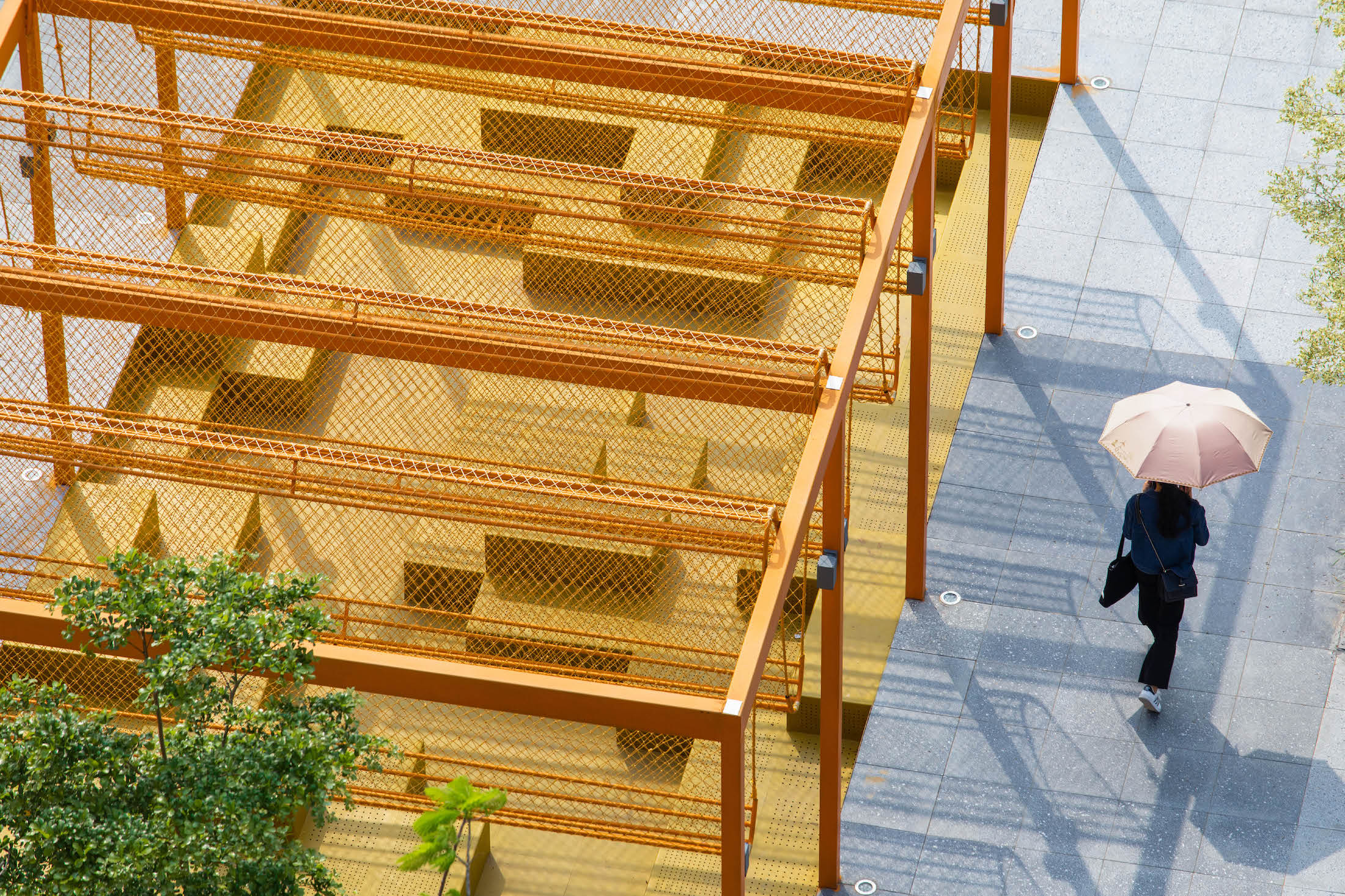
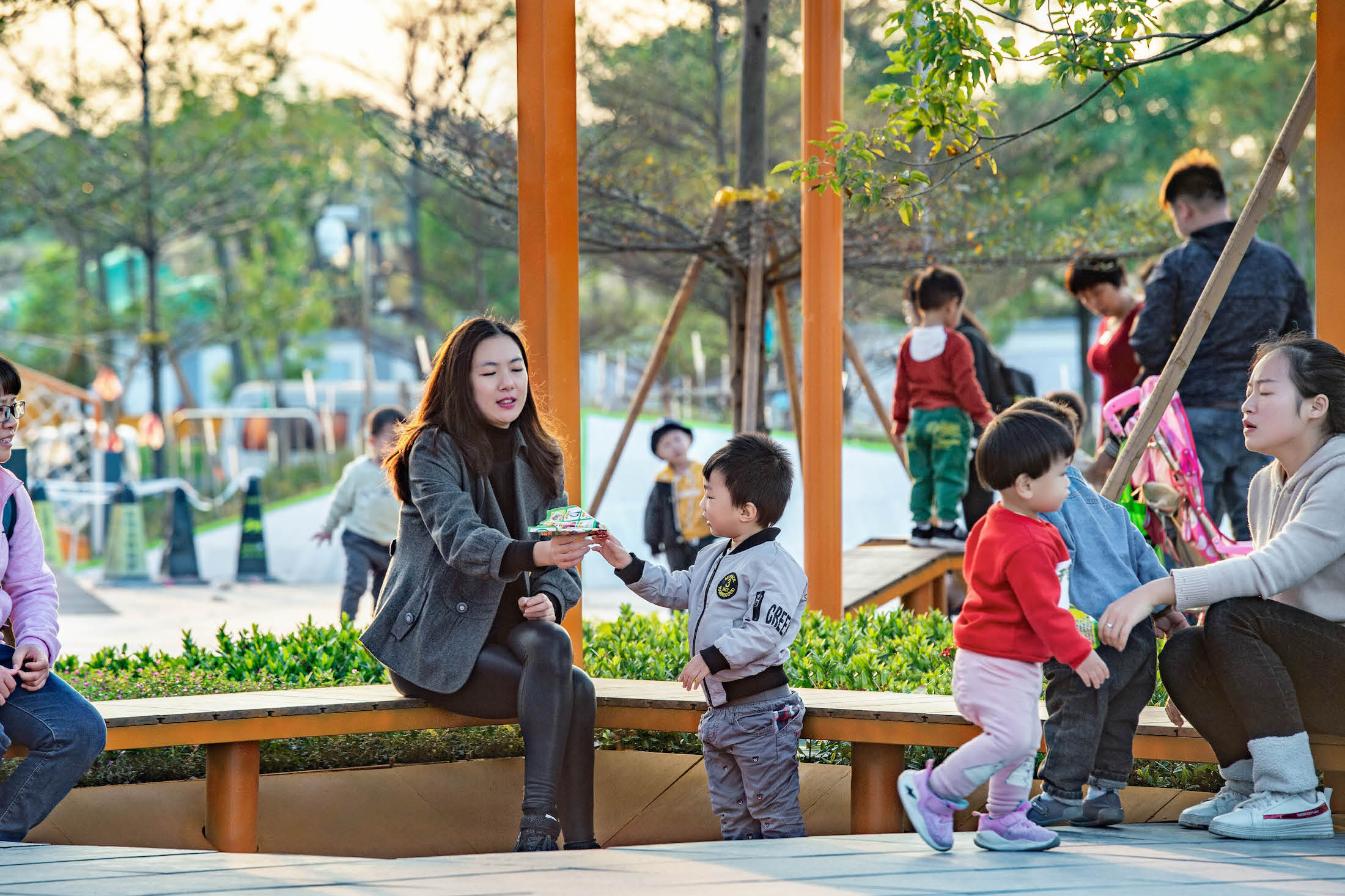
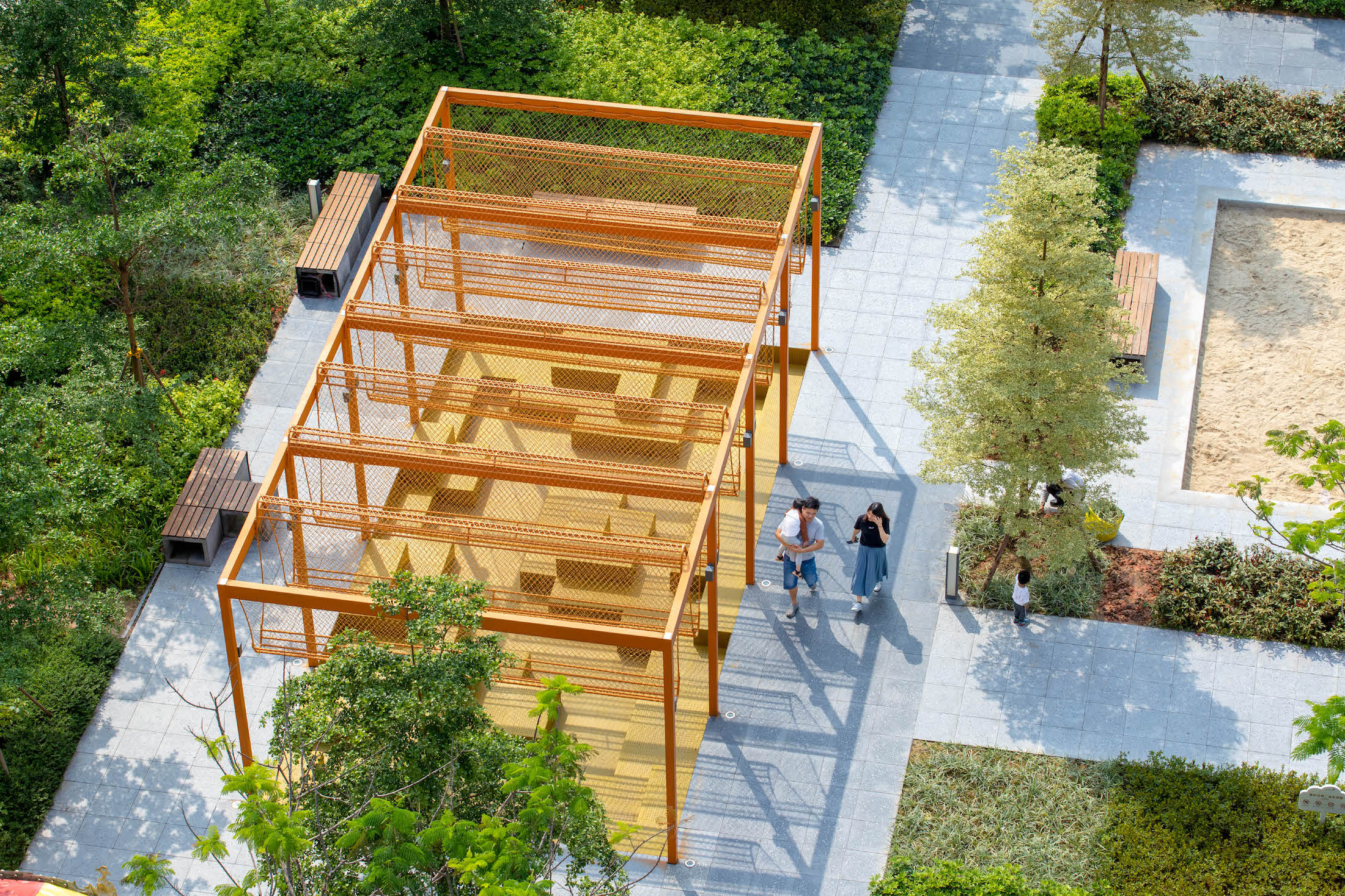

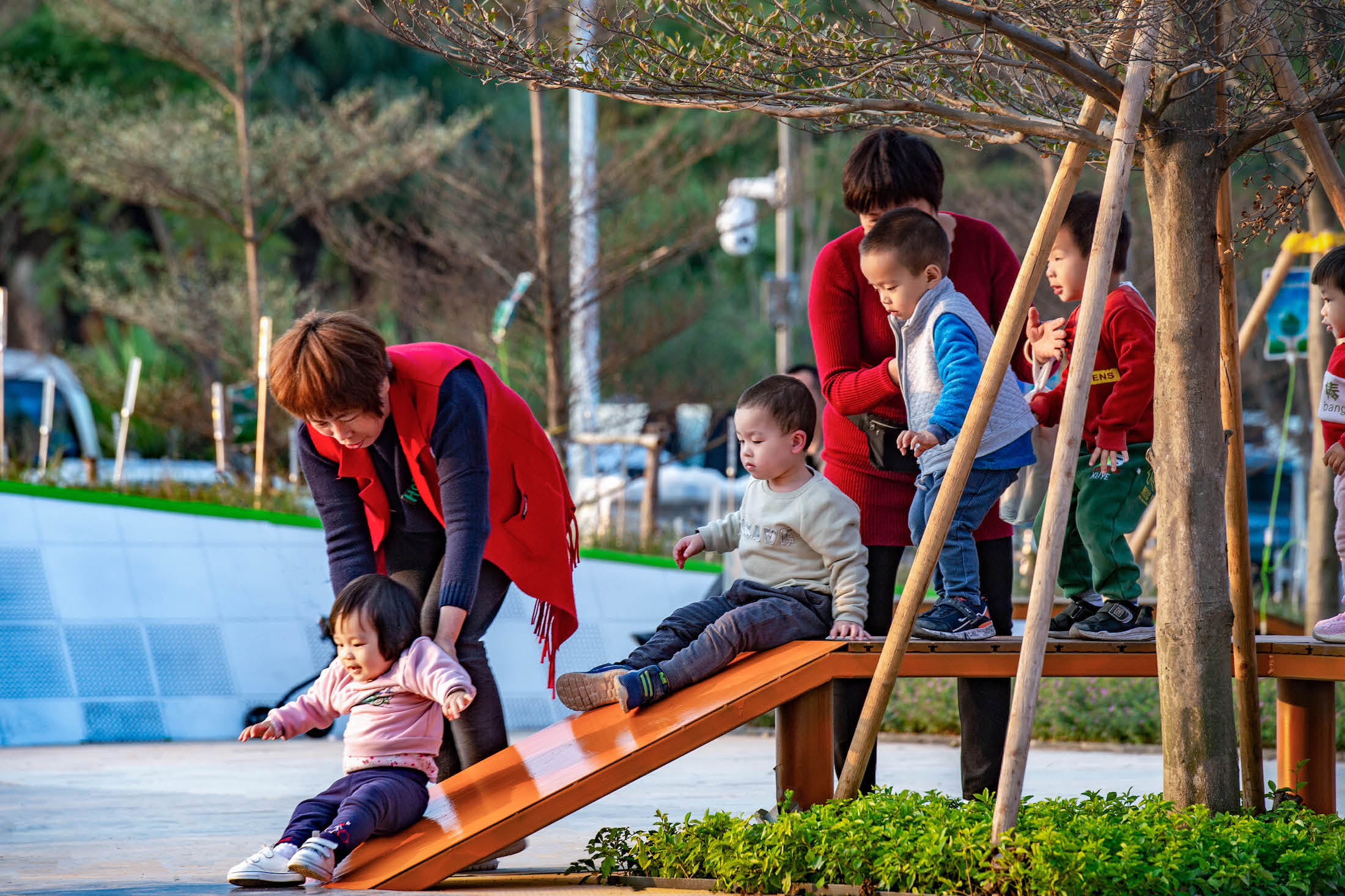

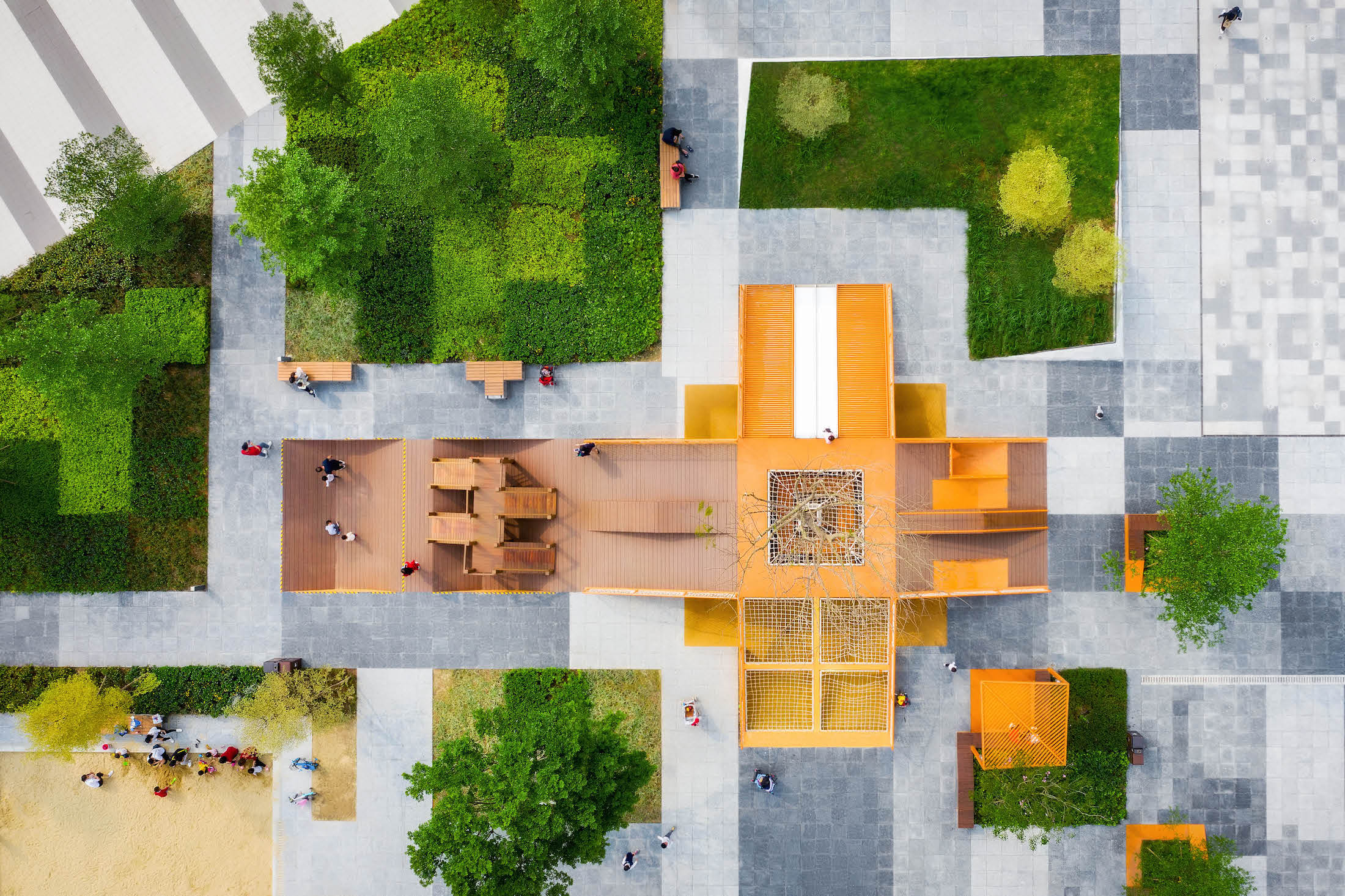
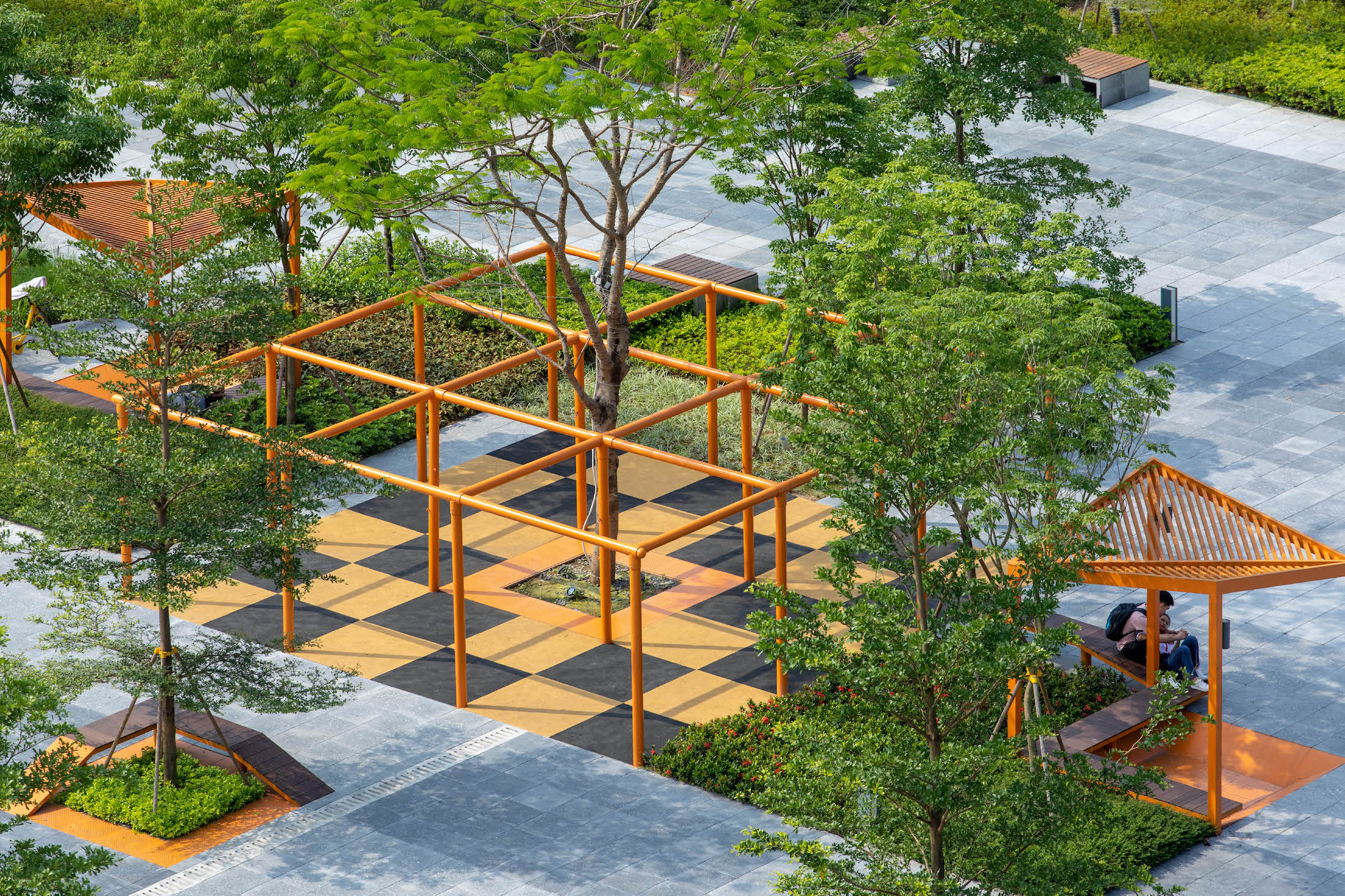
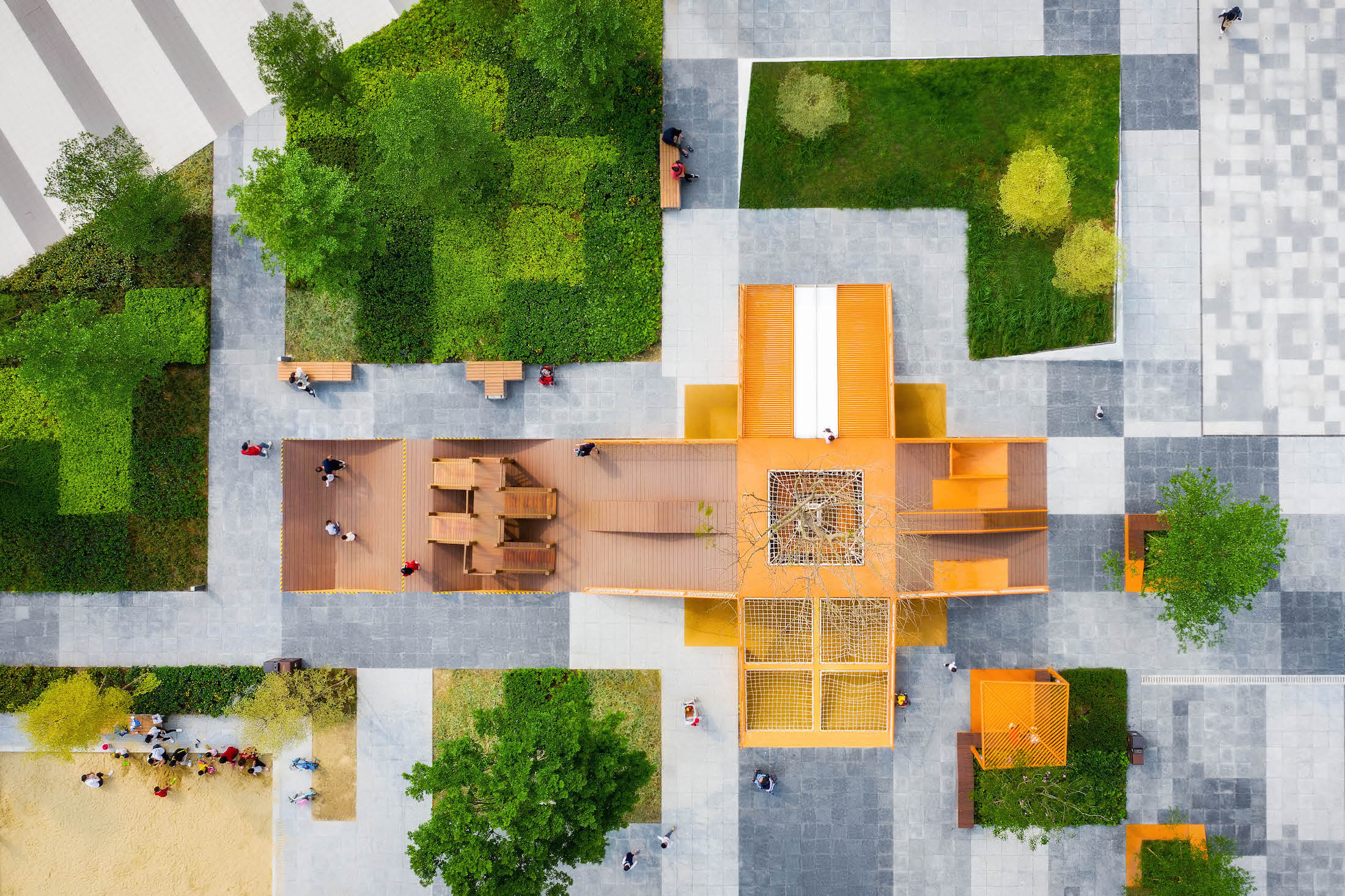
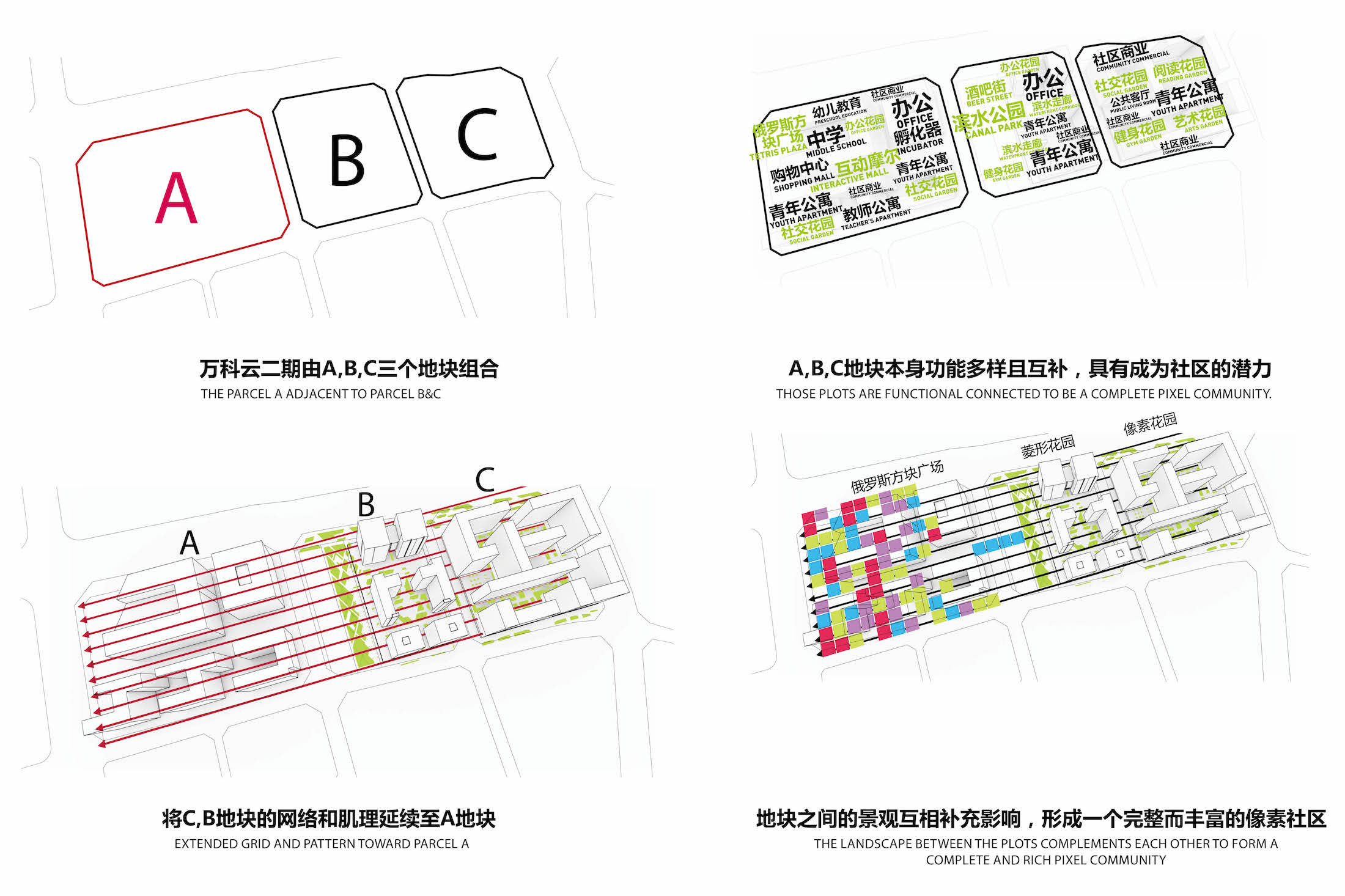
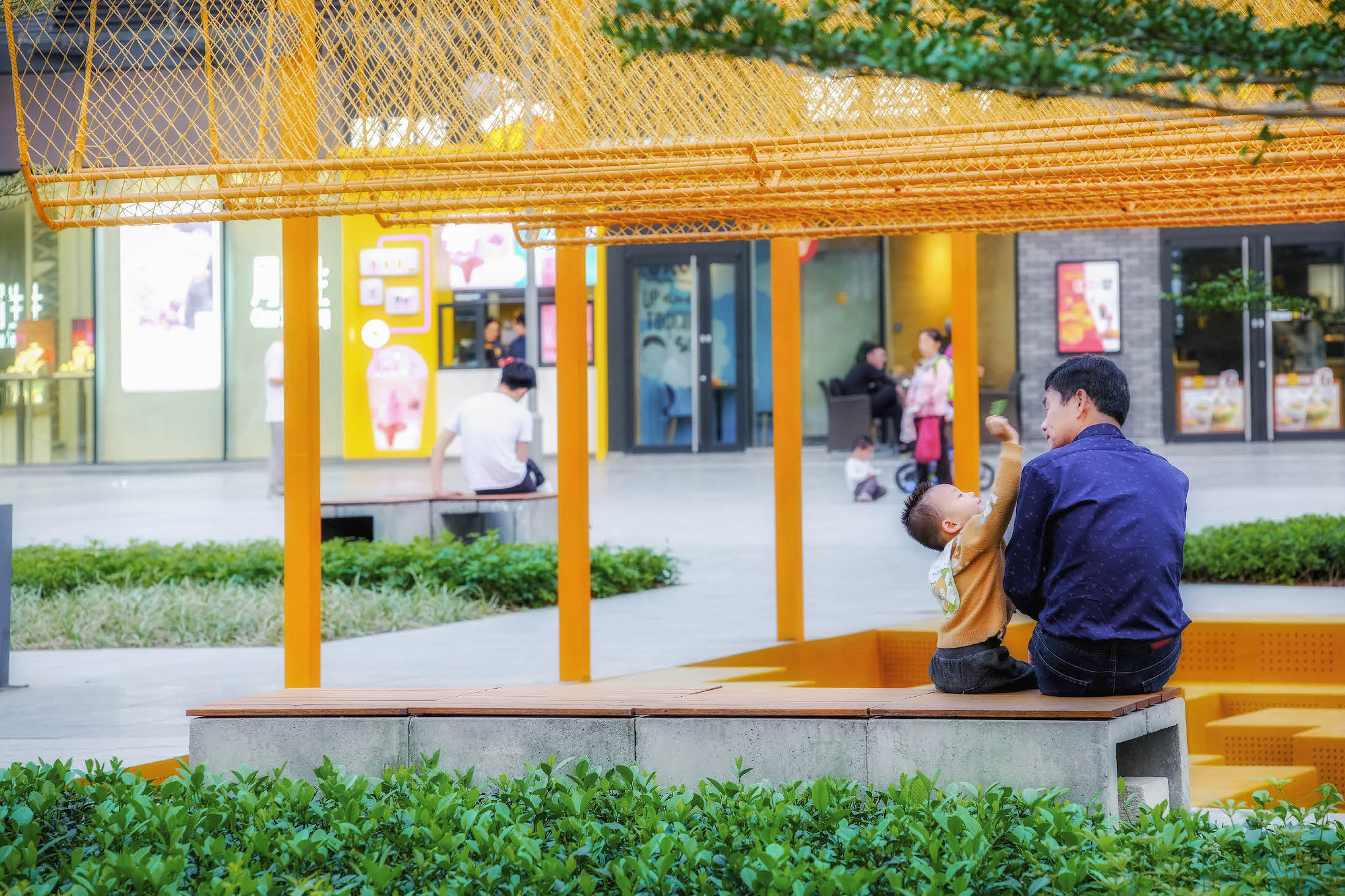
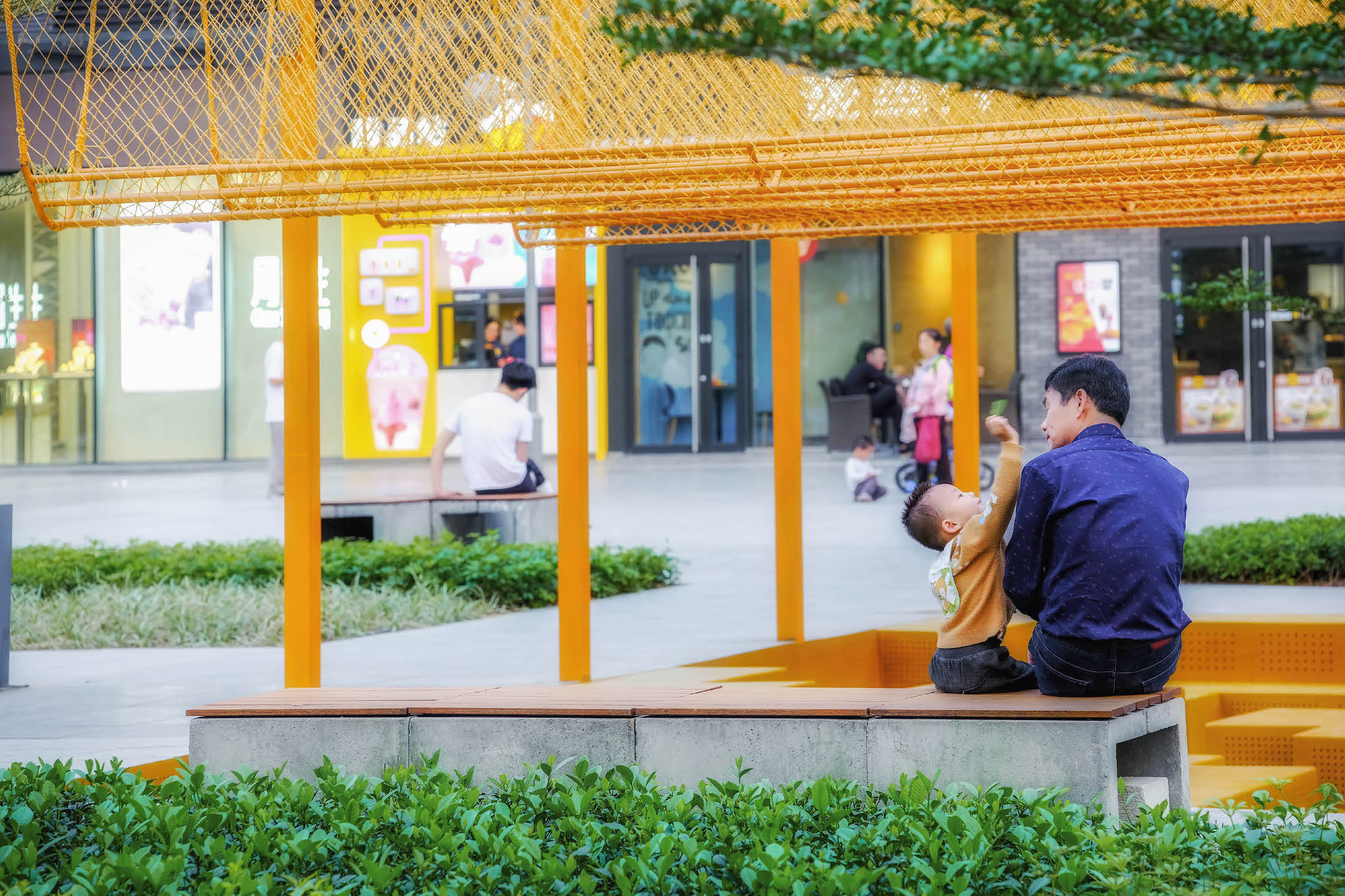
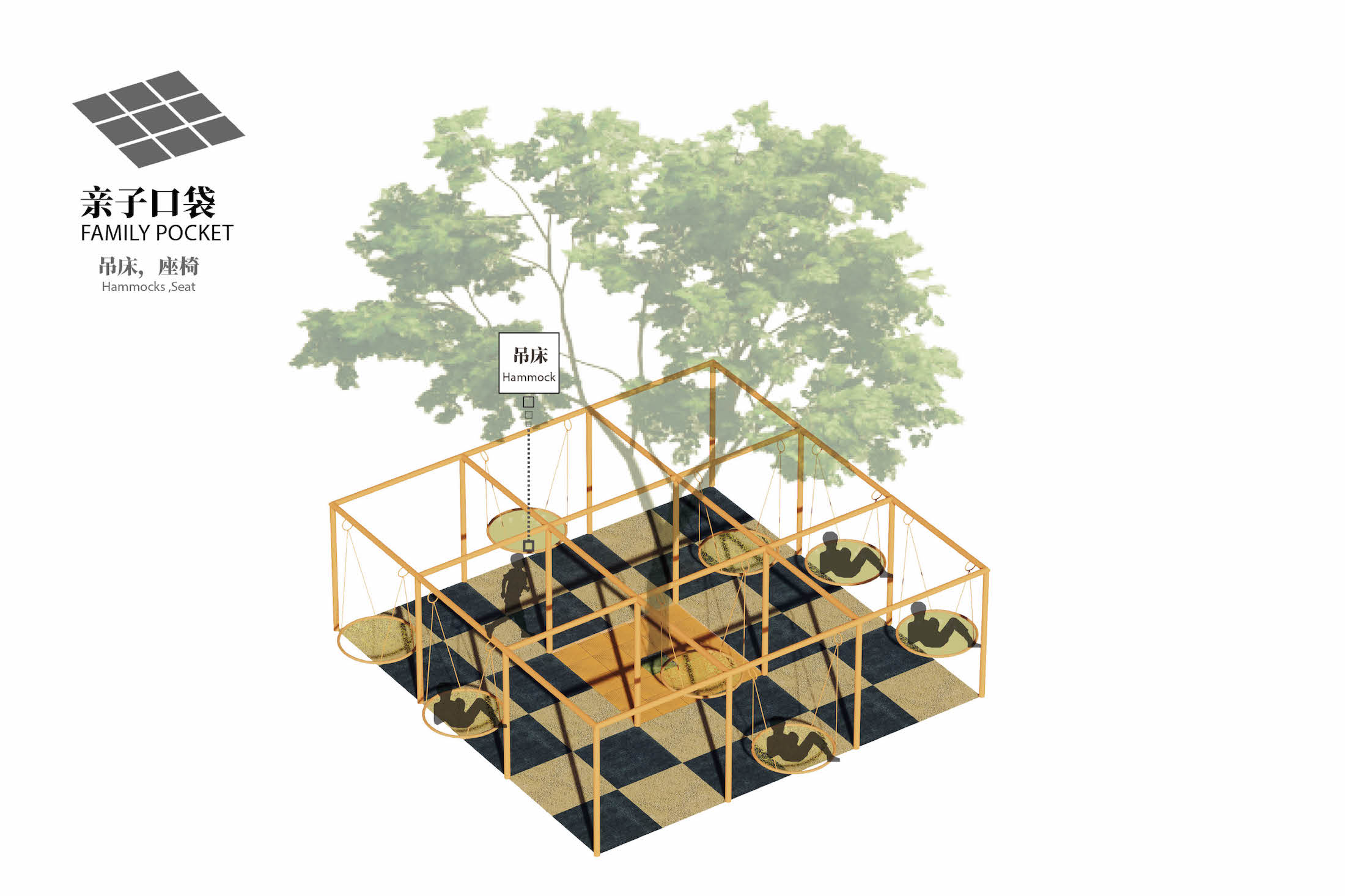
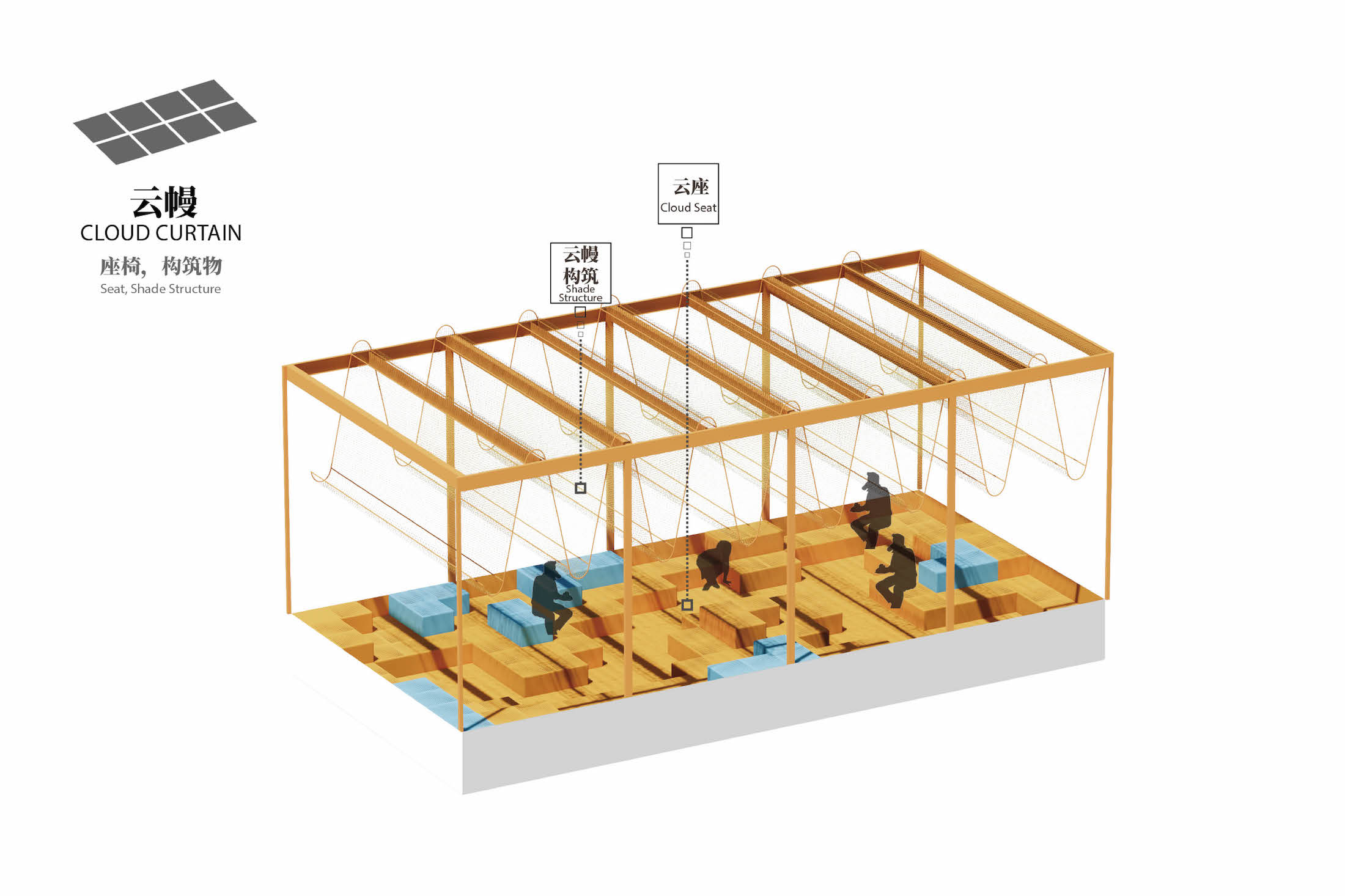
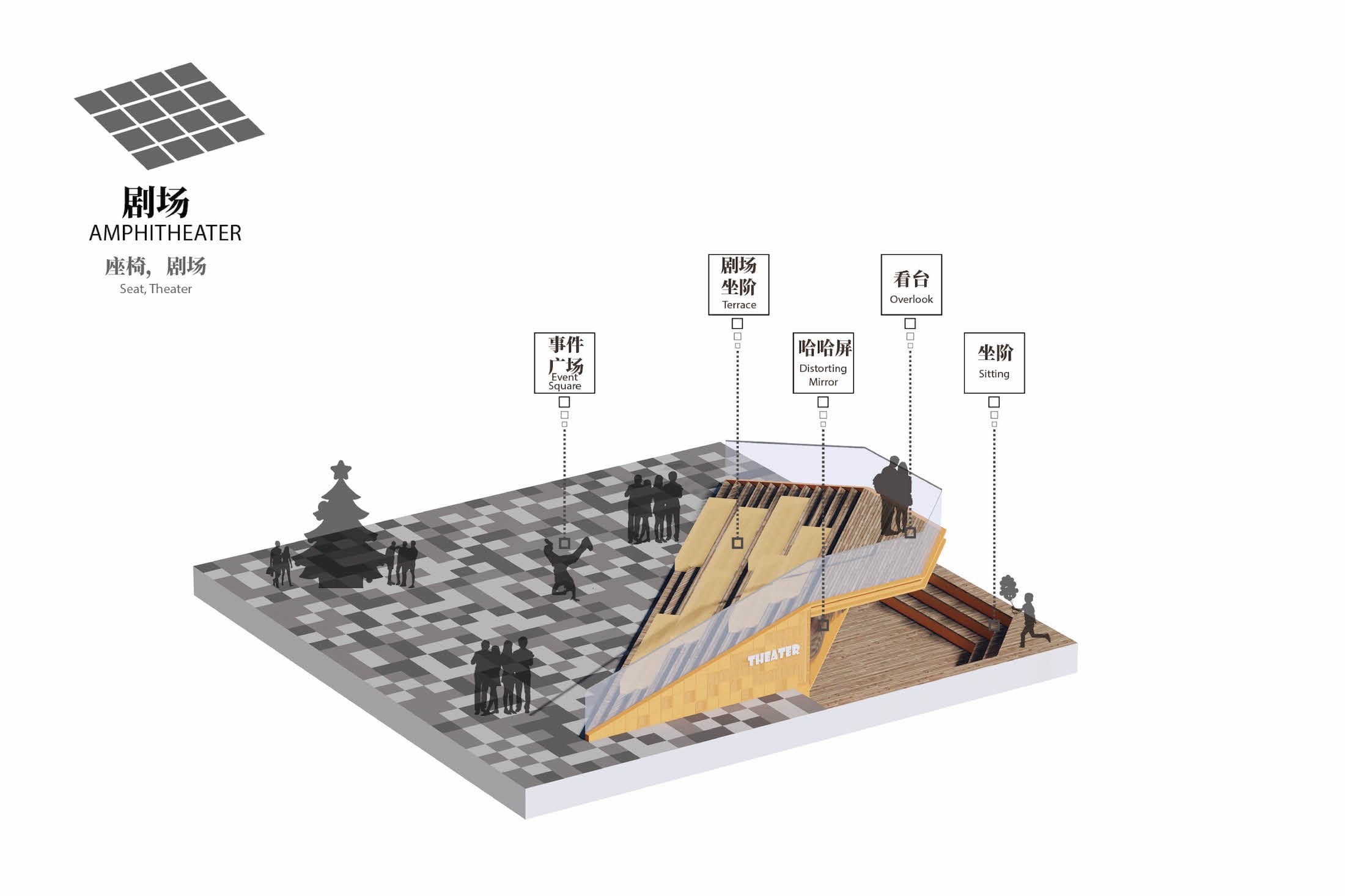

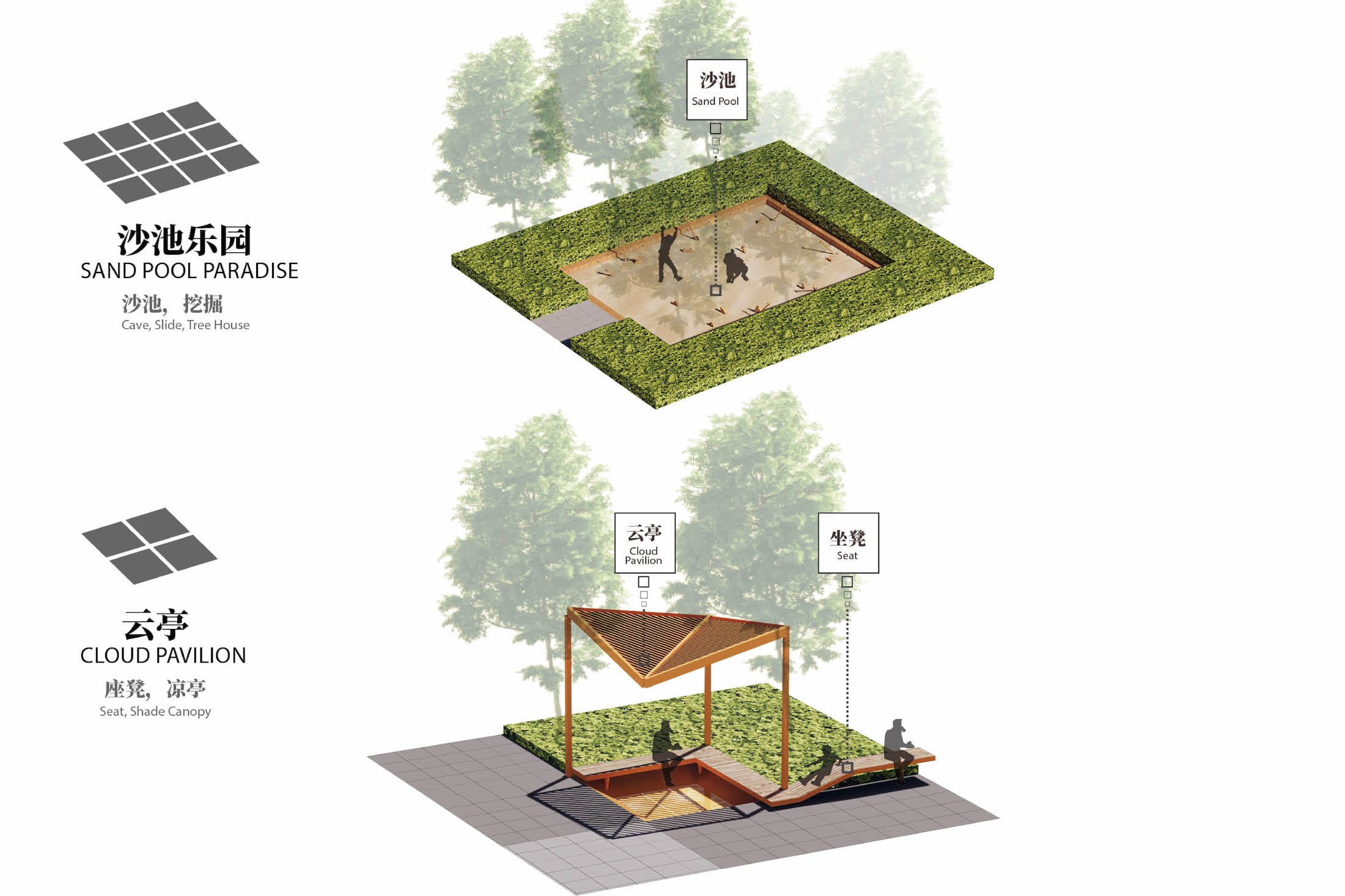
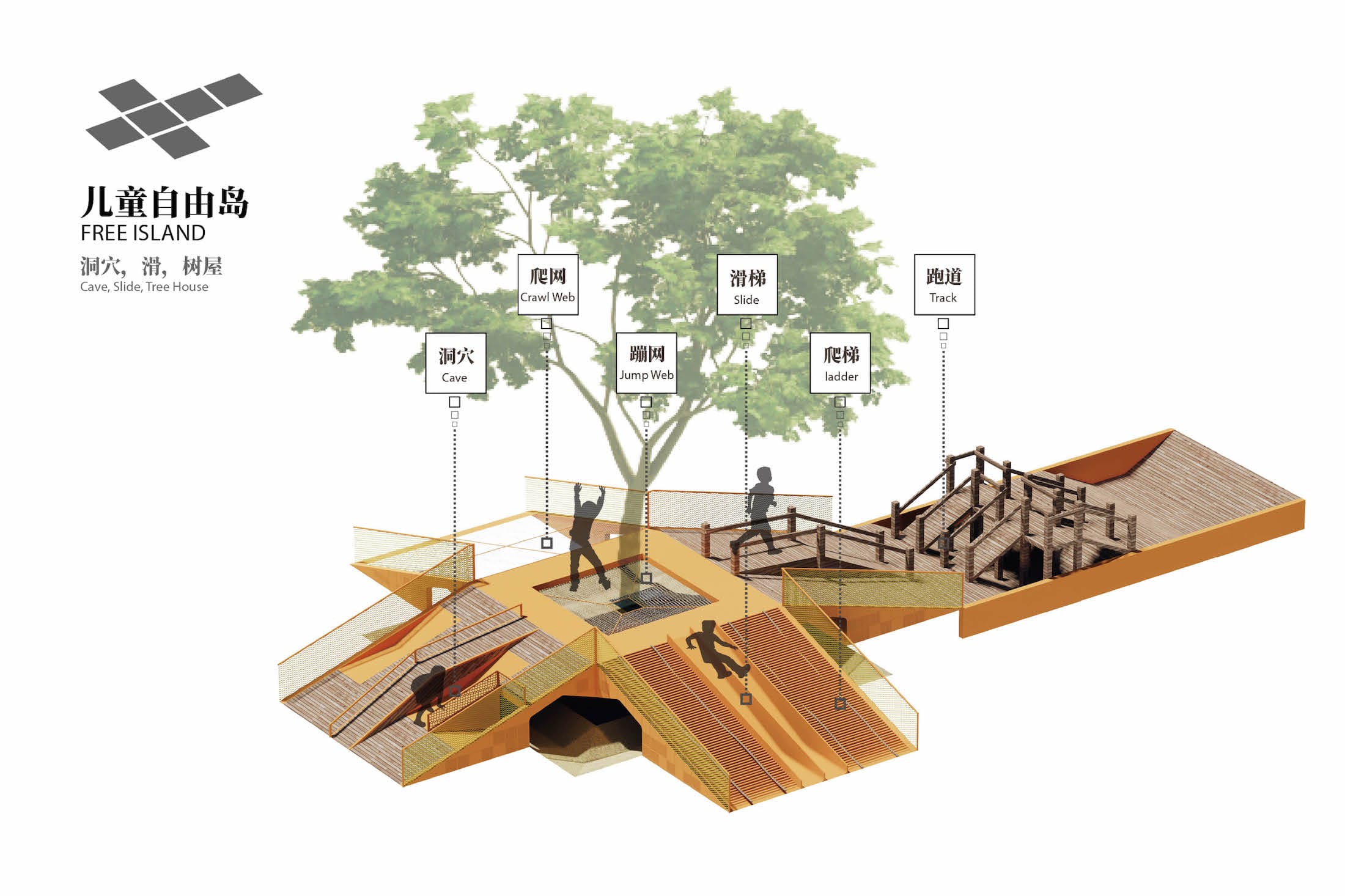

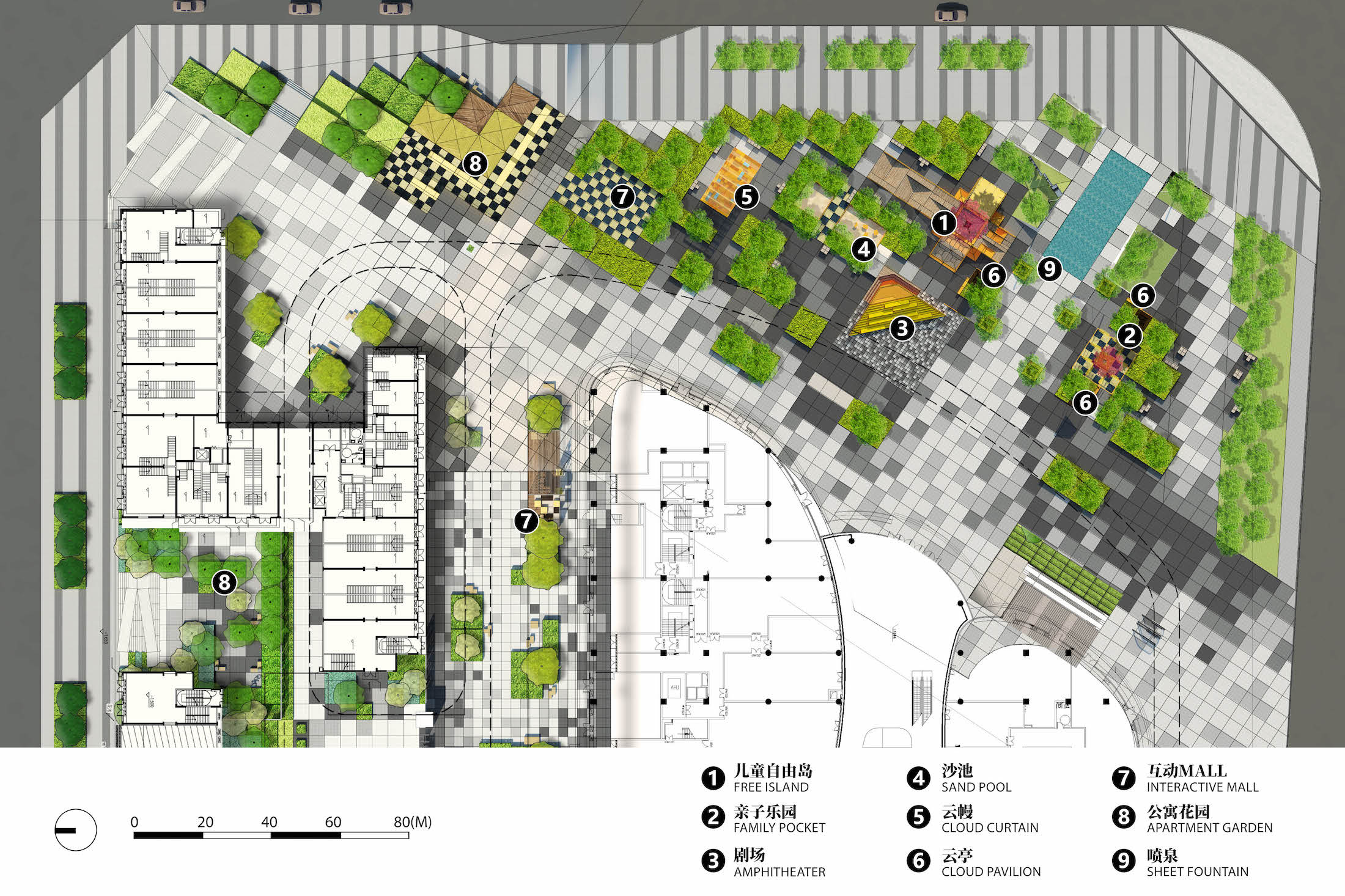
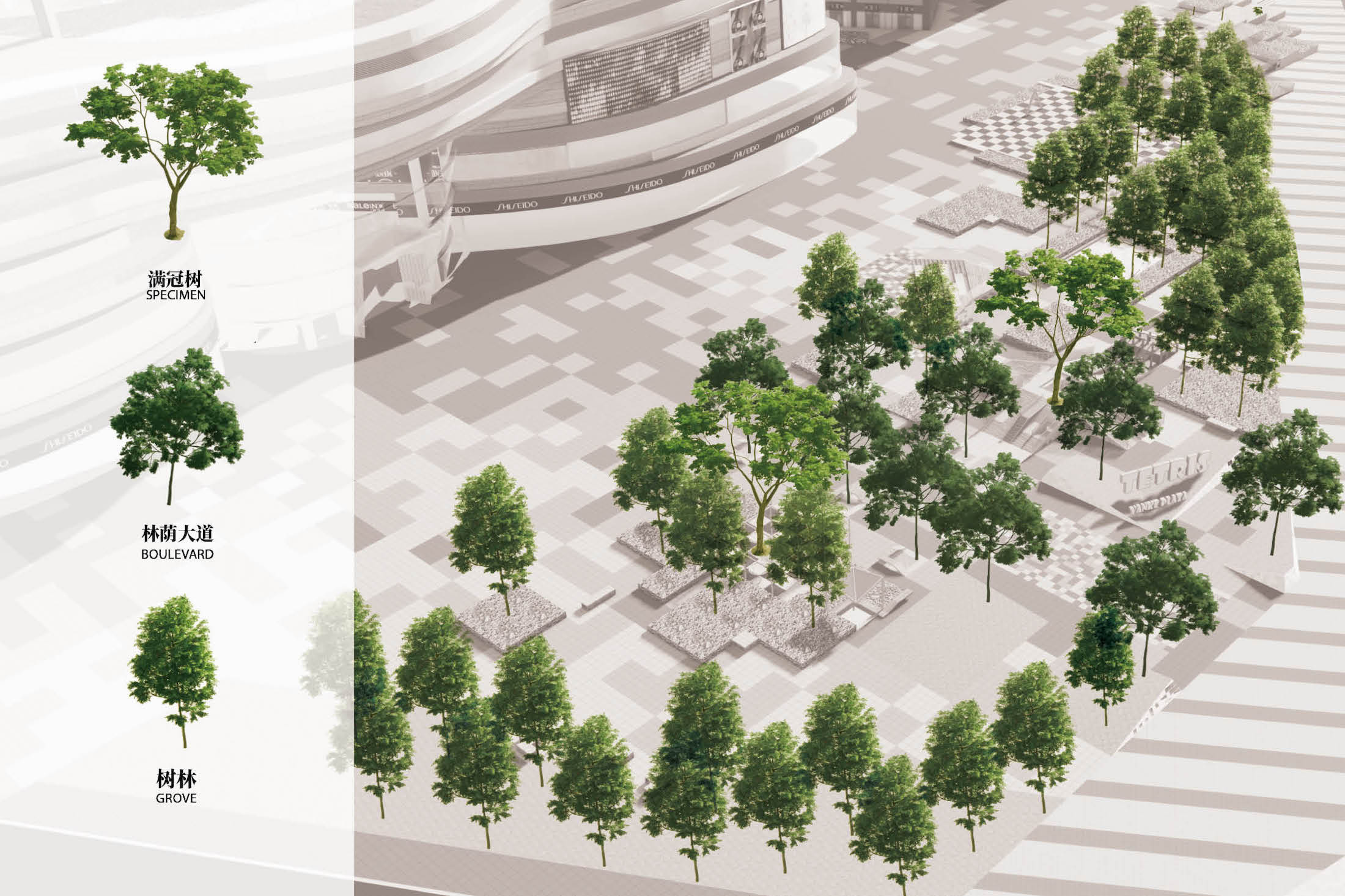
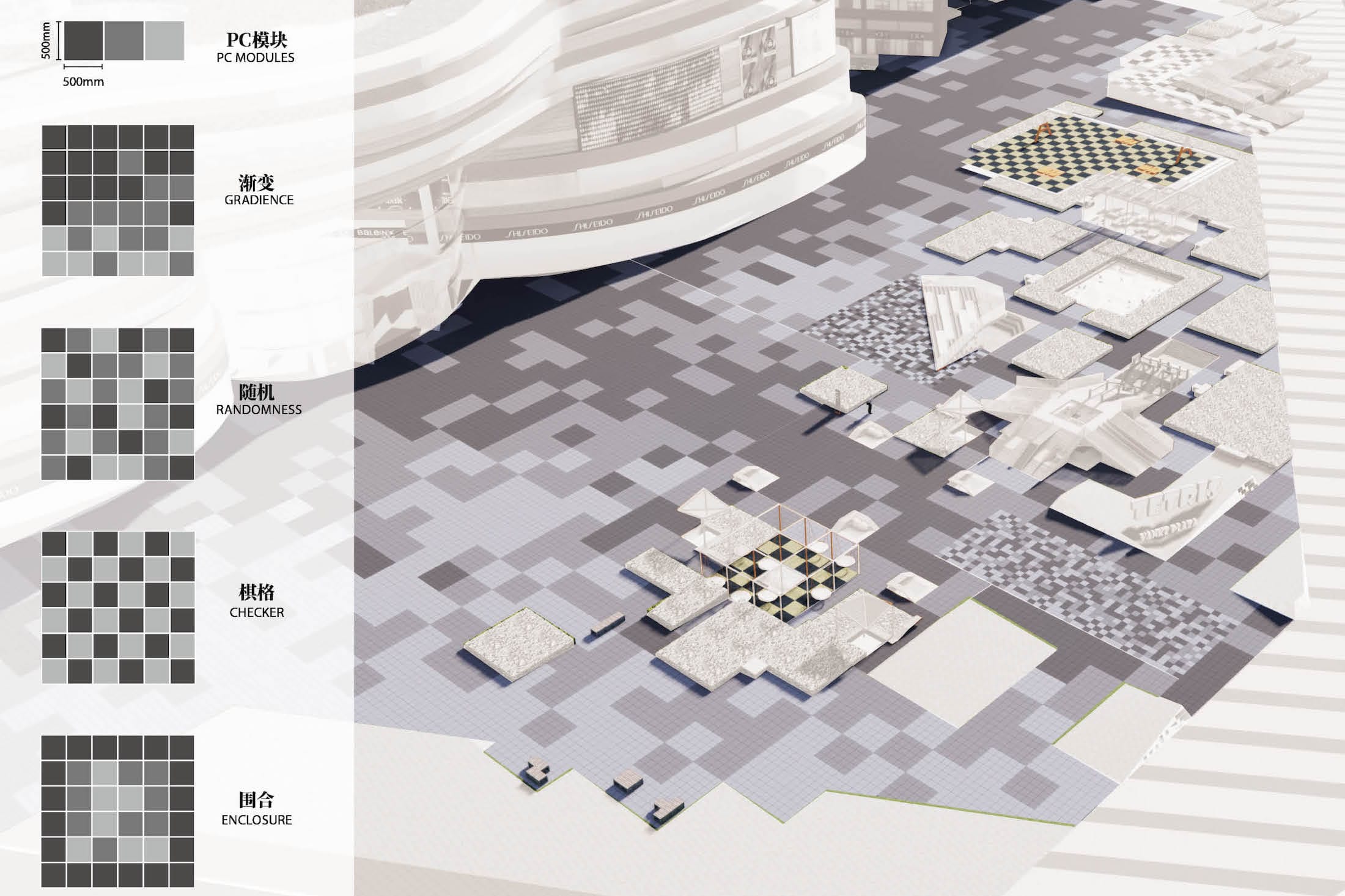
景观设计 Lab D+H
项目地址 广州,中国
设计时间 2017.6-2018.5
建成时间 2019.01
设计名:Tetris广场
项目名:万科云城二期A地块万科广场
主持合伙人:钟惠城
设计团队:宋妃敏、蓝皓、 YoungJoon Choi、袁绍钟、叶婉璐、邓柳军、肖丙如、沈永楷
业主团队:陈浩
客户:广州万科
面积:0.6公顷
landscape architecture Lab D+H
Project Location Guangzhou, China
Design Dates 2017.6-2018.5
Completion Date 2019.01
Design Name: Tetris Square
Project Name: Vanke Cloud City Phase 2 Vanke Plaza
Principal in-charge: Huicheng Zhong
Design Team: Feimin Song, Hao Lan, YoungJoon Choi, Shaozhong Yuan, Wanlu Ye, Liujun Deng, Bingru Xiao, Yongkai Shen
Client Team: Hao Chen
Client: Guangzhou Vanke
Site Area: 0.6 HA